- Search for a holiday home
- Spain information
- Advertise property
In order to give you the best search results, please select a destination before searching, e.g. "Costa del Sol" or "Barcelona"
In order to give you the best search results, please select an arrival and return date before searching.
More search options

Registering guests in your holiday home with the police

Since the Tourism Law of Andalusia came into effect in May 2016, it is now mandatory for holiday rental property owners to register ALL guests with the police.
We have covered all details of the Tourism Law in Andalusia extensively in previous articles here:
- The New Tourism Law and You
- Registration Form in English
- Help is at Hand
Regulations: Obligations and Sanctions
The owner or property manager is required to identify all travellers over 16 years old, by filling out the form "Parte de Hospederías". They must also create a Travellers Registration Book and all guests must be registered with either the local and National Police and Guardia Civil, depending on the municipality where the property is located, within 24hours of arrival.
Every traveller (aged 16+) is required to sign the Travellers Registration.
Failure to comply with these obligations may result in fines ranging from €600-30,000 depending on whether mild or serious misconduct (L.O 4/2015).
Accreditation
Providing documentation
Owners or managers of tourist accommodation must be registered as such, in person, at the local National Police Station where the property is located. To do this, they must provide the following documentation, both original and photocopy:
- Property management contract, where applicable
- Copy of registration application of the property to the Registry of Tourism
- ID of the owner or manager, along with authorisation of representation, where applicable
Application enablement police
Each rental property must be registered with the Police, even if there are several units in the same building owned by the same owner.
Each rental property will be assigned an ID code to be uses as password into the Guest Registration digital system https://webpol.policia.es/e-hotel/ where you will be able to register the guests online.
Now don’t blame the messenger for this but, as hard as it is to believe, the National Police do NOT appear to use a secure (https) website so you may see a screen like this:
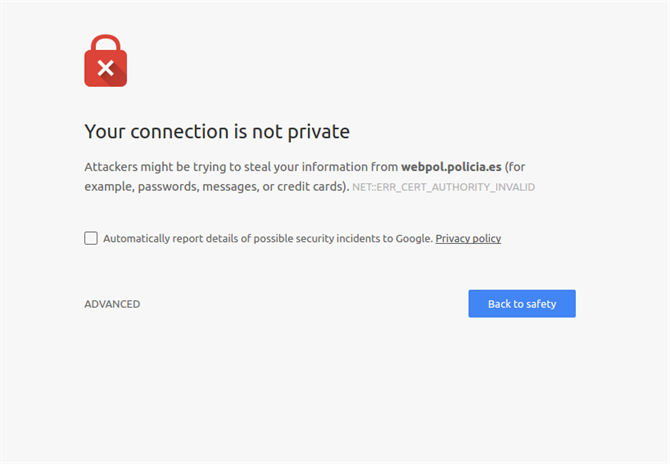
If you do, then you need to click on “Advanced” and then click on the link at the bottom “Proceed to webpol.policia.es (Unsafe)”
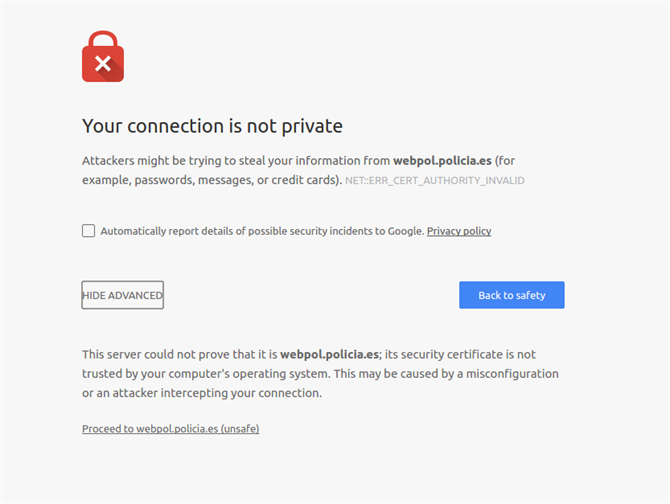
Any comments about the security of the Police website should be addressed directly to them, not in the comments below please!
Management: Part of Owners/Property Management
The owner or property manager is responsible for collecting the data identifying all travellers over 16 years of age staying in a holiday home.
You must use the form provided by the Ministry of Interior or create one containing the same traveller information:
- Name
- Number of Identity Document
- Document Type
- Date of Birth
- Gender
- Nationality
- Date of arrival
Below is a sample form which you can also download as a PDF here :
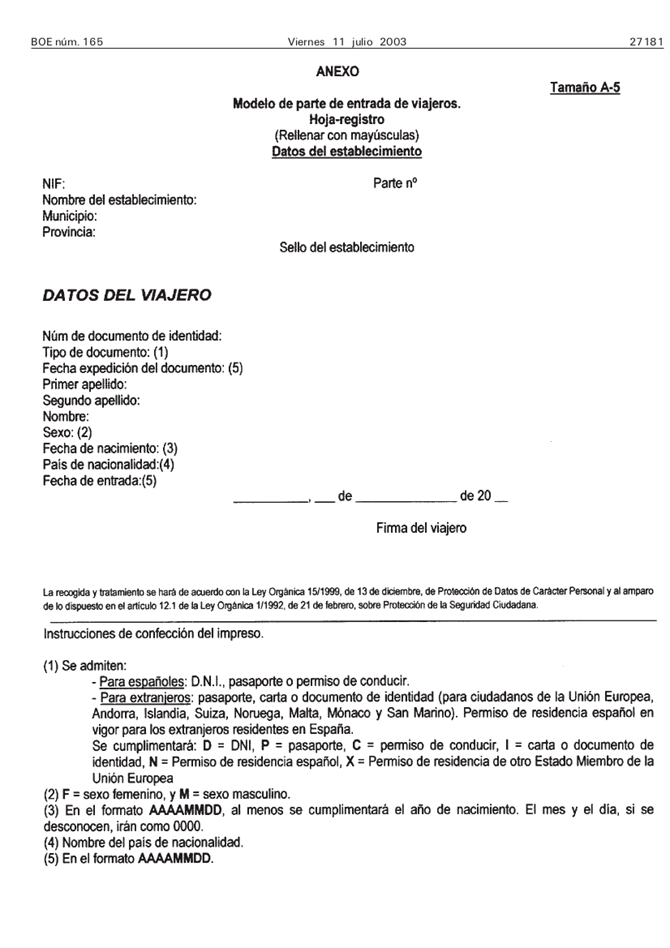
The form should also indicate the identification number, name and signature of the owner or manager.
The completed form – signed by the traveller – must be sent to either the local police, National Guard or Civil, as governed by the locality of the rental property.
All registration documents must be kept by the Owner or Rental manager, in date order, for a period of 3 years.
There are 3 ways to present the paperwork:
- in person (two copies are required),
- by post (only for those properties located in municipalities without a police station) or
- via the online digital registration system within 24hrs of arrival of the guests.
Tourism Safety Plan
The principal objective of the newly introduced "Tourism Security Plan" is to permanently increase public safety in tourist areas and provide a safer environment for tourists during their stay in our country.
There are newly established offices of Service Foreign Tourist Assistance (SATE) that are there to offer personalized assistance, via a team of police, experts and interpreters for anyone who has been a victim of a crime.
The main functions of the SATE are caring for victims of crimes or offenses, in their own language, advising them on the procedural steps and necessary paperwork i.e. cancellation of cards and credit documents, contact with embassies and consulates, communication or location family, etc.) and assist the tourist in the handling of the complaint of a crime or misdemeanour, informing him/her of his/her rights.
Here are the contact details for the SATE offices in the Malaga region:
SATE DE MALAGA
Plaza de la Marina 11 29001 - Málaga Summer hours (Apr-Sept): 09:00-20:00 Mon-Sun
Winter hours (Oct-Mar): 09:00-18:00 Mon-Sun
Tel.: 951 926 161 or 951 999 818
Email: [email protected]
SATE DE MARBELLA
Plaza de los naranjos s/n 29602 Marbella, MALAGA Opening hours: 09:00-20:00 Mon-Fri
10:30-14:00 Sat
Closed Sundays
Tel.: 952 76 11 00 Ext. 1371
Email: [email protected]
SATE DE ESTEPONA
Plaza de las Flores s/n, next to the Tourism Office, 29680 Estepona Opening Hours: 09:00-20:00 Mon-Fri
10:00-14:00 Sat
Closed Sundays
Tel.: 952 80 90 00 Ext. 1546
Email: [email protected]
Webpol: A Comprehensive Guide to Tourist Registration in Spain
- August 31, 2023
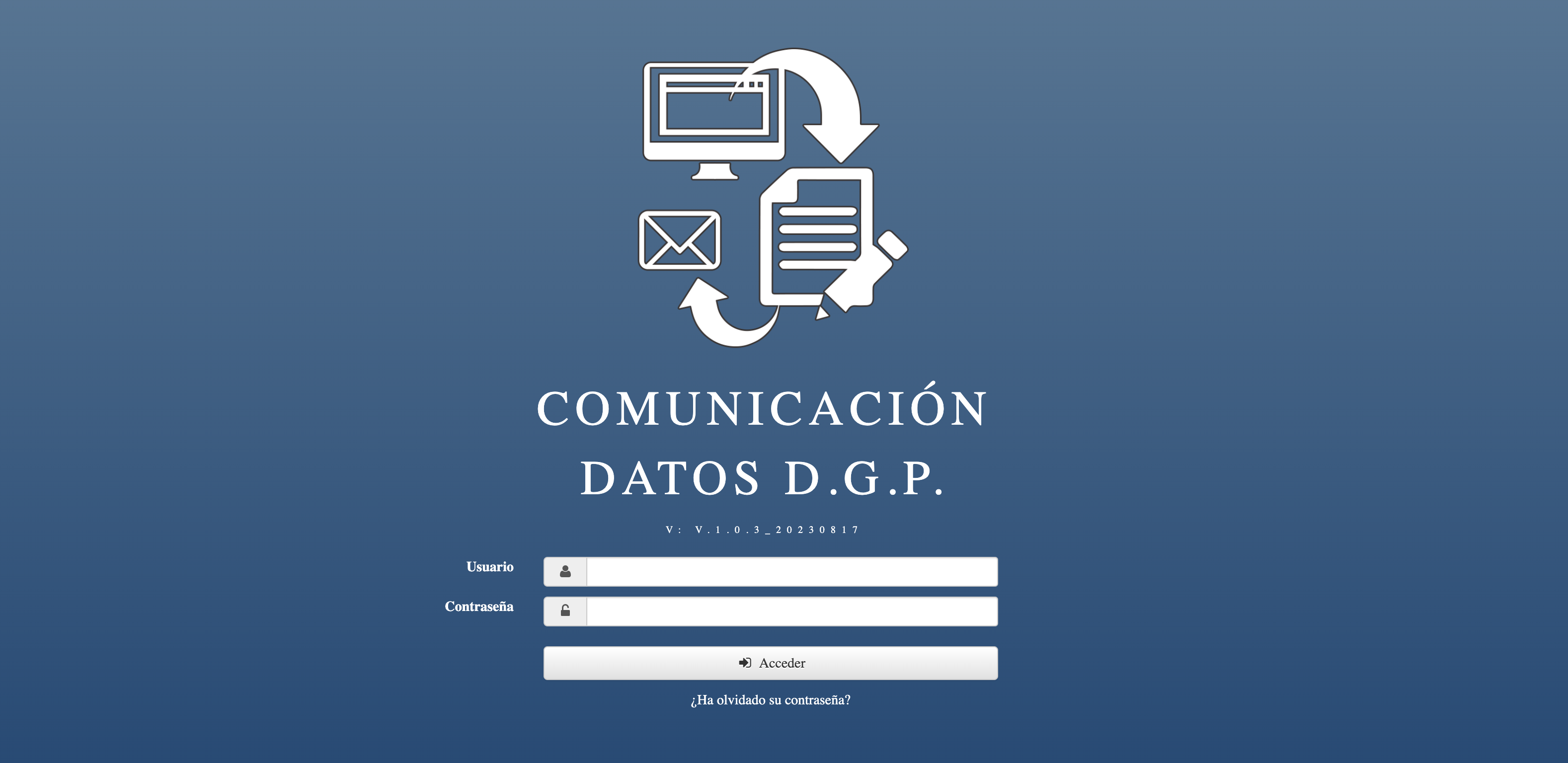
In the vibrant landscape of Spanish tourism, property managers face a myriad of responsibilities. One of the most crucial is the registration of tourists , facilitated by the Webpol system . This guide aims to provide an in-depth understanding of Webpol and its significance.
What is Webpol and Its Significance in Spanish Tourism?
Webpol is a digital platform initiated by the Spanish police to streamline the registration of tourists in accommodations across Spain. It serves as a bridge between property managers and law enforcement, ensuring that tourists are accounted for, promoting safety, and adhering to Spain’s commitment to secure tourism.
What Type of Tourist Accommodations Need to Use WebPol?
Webpol caters to a broad spectrum of accommodations. Whether it’s a luxury hotel in Madrid, a cozy B&B in Seville, a bustling hostel in Barcelona, or a serene vacation rental in Valencia, all are mandated to register their tourists through this system. This inclusivity ensures that every tourist, regardless of where they stay, is accounted for.
Who Needs to be Registered on Webpol?
All tourists staying in accommodations across Spain, who are older than 16 years, must be registered through the Webpol system. This mandate applies regardless of the type of accommodation – be it a hotel, B&B, hostel, or vacation rental.
What Details are Required for Registring Tourists on Webpol?
For the registration process, tourists are required to provide:
- Basic personal details: This includes name, age, nationality, and duration of stay.
- Identification documents: For international tourists, this would typically be a passport, while domestic tourists might provide a national ID card or similar identification.
- Address of the accommodation: The exact location where the tourist will be staying during their visit.
The “ parte de viajeros ” form serves as the primary document for this process, ensuring that all data is standardized and comprehensive.
The Repercussions of Non-compliance: What’s at Stake?
The importance of adhering to Webpol’s regulations cannot be stressed enough. Property managers who neglect to register tourists face a series of penalties. These can range from monetary fines to more severe legal repercussions. In extreme cases, repeated non-compliance could jeopardize the establishment’s operating license, leading to potential closures.
Data Security on Webpol: How Safe is the Information?
In today’s digital age, data security is paramount. Webpol, being a government-backed platform, employs state-of-the-art cybersecurity measures. Regular audits, encryption protocols, and stringent data access controls ensure that tourists’ personal information remains confidential and protected from potential breaches.
How Long Does the Initial Webpol Registration Process Take and What’s Involved?
The initial setup on Webpol is a multi-step procedure that requires an in-person visit by the property manager or owner. Here’s a breakdown of the process:
- Document Preparation: Before heading to the police station, property managers must gather all required documents. This includes:
- Identity document of the person handling the procedure.
- Accommodation registration statement of responsibility (the same form registered at the Tourism office).
- The deed in lieu document and the “Nota Simple” (Spanish Land Registry Certificate).
- In-Person Verification: At the police station, the property manager or owner must present the original documents along with photocopies for verification.
- Submission and Approval: Once the documents are verified, they are submitted for approval. If everything is in order, the police will provide the property manager with a username and password to access the Webpol system.
- Digital Registrations: After the initial setup, property managers can log into the Webpol system to register tourists. This digital process is swift, often taking just a few minutes per registration, especially if done in batches.
Delegating Registration Tasks: Is It Possible?
Absolutely. Property managers, especially those overseeing multiple properties or large establishments, can delegate the registration process. This can be to trusted staff members or even third-party agencies specializing in tourist registration. However, it’s crucial that these delegates have the necessary permissions and access to required documents.
Mistakes Happen: Correcting Errors in Registration
Accuracy is of utmost importance in the Webpol system. However, if errors are identified post-registration, property managers typically have the ability to log back into the system and make necessary corrections. This ensures that all data remains up-to-date and accurate, minimizing potential issues down the line.
How Do Webpol and Other Spanish Guest Registration Systems Differ?
In Spain, Webpol is the primary registration system for urban areas with police stations, while rural areas without such facilities use La Guardia Civil’s Hospederias portal . However, Catalonia and the Basque Country have their distinct systems tailored to their regional needs. The introduction of Hospedajes aimed to unify guest registration nationwide, but its rollout has faced delays. Property managers must be aware of these nuances to ensure compliance across different Spanish regions.
UpMarket: Revolutionizing Tourist Registration in Spain
In the dynamic realm of Spanish tourism, property managers are constantly seeking efficient solutions to streamline operations and enhance guest experiences. With the Webpol system being a pivotal aspect of tourist registration, UpMarket is a game-changer, offering a suite of tools tailored to the unique needs of the Spanish market.
1. Time-Saving Automation
Bid farewell to tedious manual data entry. UpMarket’s platform is designed to seamlessly integrate with Webpol, automating guest communication and transmitting their details directly to the system . This not only ensures accuracy but also frees up countless hours each week, allowing property managers to focus on other crucial aspects of their business.
2. Enhanced Guest Communication
UpMarket recognizes the importance of timely and effective communication. Our platform sends automatic reminders and notifications to guests, ensuring that their information is collected promptly. This proactive approach minimizes delays and ensures a smooth check-in process.
3. Elevating the Guest Experience
First impressions matter. With UpMarket, guests are introduced to a swift and secure check-in process. They can effortlessly scan their ID documents, enhancing their overall satisfaction and setting a positive tone for their stay.
4. Unparalleled Data Security
In an era where data breaches are a growing concern, UpMarket prioritizes the security of guest data. Employing end-to-end encryption, our platform safeguards guest information, ensuring full compliance with Webpol requirements and offering peace of mind to both property managers and guests.
5. Real-Time Notifications
Stay a step ahead with UpMarket’s real-time notifications. Property managers receive instant updates on the status of each reservation, allowing them to take timely action and ensuring that no detail is overlooked.
6. Comprehensive Integration
Whether you’re using a Property Management System (PMS) or platforms like Airbnb, UpMarket’s platform integrates seamlessly. This ensures a unified system where guest data flows smoothly from one platform to another, minimizing manual interventions.
7. Customizable Solutions
Every property is unique, and so are its needs. UpMarket offers tailored solutions, from AI-driven virtual concierges to customizable guest apps, ensuring that property managers have the tools they need to offer unparalleled guest experiences.
8. Future-Ready Platform
The tourism landscape is ever-evolving, and UpMarket is committed to staying at the forefront. Our team is continuously working on new features, integrations, and improvements, ensuring that property managers are always equipped with the latest tools and technologies.
In the intricate world of Spanish tourism, UpMarket stands out as a beacon of innovation and efficiency. By simplifying the Webpol registration process, offering state-of-the-art tools, and prioritizing guest experiences, UpMarket empowers property managers to excel in their domain and contribute to Spain’s vision of world-class tourism.
Ready to Elevate Your Property Management Game? Embrace the future with UpMarket’s cutting-edge solutions. Streamline your operations, ensure compliance, and deliver unparalleled guest experiences. Contact UpMarket today to learn more!
Shani Cohen
You may also like.

Parte de Entrada de Viajeros in Spain: A Comprehensive Guide
- August 26, 2023

SEFScan: Streamlining SEF SIBA Alojamento Local Bulletin
- July 11, 2023

Automate Spanish Guest Registration: Boost Compliance with UpMarket
- May 5, 2023

Channel manager
Veröffentliche auf Dutzenden von Websites und erreiche Millionen.
Das einfachste Abrechnungssystem.
Dynamische Preise
Die besten Preise im Automatikmodus, wie bei Fluggesellschaften und Hotels.
Dein Unternehmen, deine Gäste und deine Reservierungen in der Tasche.
Kautionsschutzgarantie zum Schutz Ihrer Immobilien.
Direktbuchungen
Erhalten Sie Buchungen, senden Sie Werbeaktionen und teilen Sie sie in sozialen Medien.
Nachrichten
Alle Kommunikationen an einem Ort.
Beginnen Sie Ihre Anzeigen mit professioneller Beratung.
Anzeigenoptimierung
Wir helfen Ihnen, die perfekte Anzeige zu erstellen."
Verkaufen Sie Extras und schaffen Sie ein großartiges Erlebnis.
Ihre professionelle buchbare Website für direkte Reservierungen.
Kalendersynchronisierung
Vereinfachen Sie die Buchungen, ohne manuelle Aktualisierungsprobleme.
Bewertungsmanagement
Alle Bewertungen Ihrer Gäste an einem Ort.
Einzige Rechnung
Vergessen Sie das administrative Chaos der Abrechnung.
Online Check-in
Senden Sie automatisch alle Informationen Ihrer Gäste an die Behörden.
Gestionnaire de canaux
Publiez sur des dizaines de sites et atteignez des millions.
Le système de paiement le plus simple.
Prix dynamiques
Les meilleurs prix en mode automatique, comme les compagnies aériennes et les hôtels.
Application mobile
Ton entreprise, tes invités et tes réservations dans ta poche.
Garantie de la caution pour protéger vos propriétés.
Réservations directes
Obtenez des réservations, envoyez des promotions et partagez sur les réseaux sociaux.
Toutes les communications au même endroit.
Commencez vos annonces avec les conseils de professionnels.
Optimisation des annonces
Nous vous aidons à créer l'annonce parfaite.
Vendez des extras et créez une expérience exceptionnelle.
Votre site web professionnel pour recevoir des réservations directes.
Sincronización de calendarios
Simplifica las reservas, sin complicaciones de actualización manual.
Gestion des avis
Tous les avis de vos clients dans un seul endroit.
Facture unique
Oubliez le chaos administratif de la facturation.
Enregistrement en ligne
Envoyez automatiquement toutes les informations de vos clients aux autorités.
Publica su dozzine di siti e raggiunge milioni
Il sistema di pagamento più semplice.
Prezzi dinamici
I prezzi in modalità automatica, come fanno le compagnie aeree e gli hotel.
Applicazione mobile
Il tuo business, i tuoi ospiti e le tue prenotazioni nel palmo della mano.
Garanzia di deposito cauzionale affidabile per la protezione delle tue proprietà.
Prenotazioni dirette
Ottieni prenotazioni, invia promozioni e condividi sui social media.
Bacheca unificata
Tutti i tuoi messaggi in un unico posto.
Esperta configurazione
E inizia la tua attività valutata da esperti in affitti a breve termine.
Listing optimisation
We help you create the perfect listing to stand out.
Optional extras
Sell extras online and build a great experience for guests.
Your professional bookable website to receive direct bookings.
Calendar sync
Streamline bookings, no manual updating hassles.
Gestione delle recensioni
Panoramica di tutte le recensioni dei tuoi ospiti in un unico posto.
Fattura singola
Per dimenticare il caos amministrativo della fatturazione.
Check-in online
Inviare automaticamente tutte le informazioni dei tuoi ospiti alle autorità.
Nachrichten und Informationen zur Ferienvermietung.
Airbnb SEO listing optimization insights from a marketer
Expedia vacation rentals: why should hosts list here, airbnb revenue calculator: breaking down host profits, fallstudien.
Benutzer von Your.Rentals.
Kurzzeitvermietung leicht gemacht.
Notizie e informazioni sulle affitto.
Casi di studio
Utenti di Your.Rentals.
Affitto a breve termine più semplici.
Centro de información del alquiler vacacional.
Casos de estudio
Usuarios reales de Your.Rentals.
Sobre nosotros
Alquiler vacacional más simple.
Publica en docenas de sitios y llega a millones.
El sistema de cobro más simple.
Precios dinámicos
Los mejores precios en modo automático, como las aerolíneas y hoteles.
Aplicación móvil
Tu negocio, tus huéspedes y tus reservas en el bolsillo.
Garantía de la fianza para proteger tus propiedades.
Reservas directas
Obtén reservas, envía promociones y comparte en redes sociales.
Todas las comunicaciones en un solo lugar.
Empieza tus anuncios asesorado por profesionales.
Optimización de anuncios
Te ayudamos a crear el anuncio perfecto.
Vende extras y crea una gran experiencia.
Tu sitio web profesional reservable para recibir reservas directas.
Calendarios sincronizados
Simplifica las reservas, sin complicaciones y actualizaciones manuales.
Gestión de reseñas
Todas las reseñas de tus huéspedes en un solo lugar.
Factura única
Olvida el caos administrativo de la facturación.
Registro de huéspedes
Automatiza el check in y envío de los datos a las autoridades.
The information center for short term rentals.
Case studies
Don't just take our word for it.
Let's make renting simple.
Steigern Sie Ihre Einnahmen
Kombinieren Sie Software, die den Markt automatisch scannt und Ihre Preise anpasst, mit echten Personen, die Ihnen fachkundige Beratung bieten.
Einfache Ferienvermietung
Von Buchungen bis Zahlungen an einem Ort. Verabschieden Sie sich von mehreren Softwareanbietern und konzentrieren Sie sich auf die Schaffung unvergesslicher Erlebnisse für Ihre Gäste.
Brauchst du mehr Zeit?
Die "Alles-in-einem" Plattform von Your.Rentals kombiniert alles an einem Ort, einschließlich Automatisierungen, um Ihnen die Zeit zurückzugeben, die Sie benötigen, um Ihr Geschäft zu wachsen.
Boostez vos revenus
Associez un logiciel qui analyse automatiquement le marché et ajuste vos tarifs, avec de vraies personnes qui vous fournissent des conseils experts.
Location de vacances simplifiée
Des réservations aux paiements, tout en un seul endroit. Dites adieu à plusieurs fournisseurs de logiciels et concentrez-vous sur la création d'expériences mémorables pour les invités.
Besoin de plus de temps ?
La plateforme "Tout-en-un" de Your.Rentals regroupe tout en un seul endroit, y compris les automatisations pour vous rendre le temps dont vous avez besoin pour faire croître votre entreprise.
Aumenta i tuoi guadagni
Combina software che scansiona automaticamente il mercato e regola le tue tariffe, con persone reali che forniscono consulenza esperta.
Facilita l'affitto per le vacanze
Dalle prenotazioni ai pagamenti, tutto in un unico luogo. Dì addio a diversi fornitori di software e concentrati sulla creazione di esperienze memorabili per gli ospiti.
Hai bisogno di più tempo?
La piattaforma "Tutto-in-Uno" di Your.Rentals mette insieme tutto in un unico posto, inclusi automatismi per restituirti il tempo che ti serve per far crescere la tua attività.
Potencia tus ingresos
Combina software que escanea automáticamente el mercado y ajusta tus tarifas, con personas reales que te brindan asesoramiento experto.
Alquiler vacacional fácil
De las reservas a los pagos en un solo lugar. Di adiós a múltiples proveedores de software y concéntrate en crear experiencias memorables para los huéspedes.
¿Necesitas más tiempo?
La plataforma "Todo-en-Uno" de Your.Rentals combina todo en un solo lugar, incluidas las automatizaciones para devolverte el tiempo que necesitas para hacer crecer tu negocio.
Publish on dozens of sites and reach millions of guests.
The simplest payment service.
Smart rates
Set the best prices on autopilot mode, just like airlines and hotels do.
Your business in your pocket: your guests and booking on the go.
Reliable security deposit guarantee for your properties protection
Direct booking
Get booked, send promo codes and share on social media.
Unified inbox
All your guests communications in one place.
Expert setup
Start your business assessed by short term rental experts.
Review management
Overview of all your guests reviews in one place.
Single invoice
For get about the administrative invoicing caos.
Send all your guests information to authorities automatically.
Max out your profits
Combine software that automatically scans the market and adjusts your rates, with real people to provide you with expert advice.
Easy short term rentals
From bookings to payments in one place. Say goodbye to multiple software vendors and focus on creating memorable guest experiences.
Need extra time?
Your.Rentals All-in-one platform combines everything in one place, including automations to give you back the time you need to grow your business.

Guest Registration in Spain: a guide for Airbnb hosts
by Ilya Semenkov | Nov 17, 2023 | Rental Property Management , Vacation Rental Industry
What is a Guest Registration?
Guest Registration is basically a recording of the rental guest’s information for official purposes made during the check-in of the guest at the front office of any accommodation during their travel.
Registration is mandatory for all guests, whether they have reserved accommodation or are walk-ins. During registration, guests must provide essential information including their:
- Email contact
- National ID (for Spanish citizens) or passport (for EU citizens).
It is the travellers accommodation providers’ responsibility to safeguard guest information and not disclose it to unauthorised individuals.
Guest Registration law for hosts in Spain
According to the Spanish Royal Decree 933/2021 , all hosts in Spain are required to register their guests to guarantee citizen security. This includes vacation rentals, bed and breakfast, camping sites, hostels, and hotels.
The reglamentation of the law mandates that all travellers regardless of age must be registered by completing and signing a form known as the traveller’s part (parte de Entrada). In the case of persons under 14 years old, their information will be provided by the adult person with whom they are accompanied.
After that the registration must be sent by the hosts and vacation property owners and managers to the competent authorities in a lapse of 24 hours within the guest arrival.
Register a Guest in Spain
Previously, there was only one single dispatch of the travellers’ report, which was sent to the different security forces such as “Hospederías de la Guardia Civil” and “Policía Nacional”(National Police), depending on the autonomous community. Under the new regulations, two submissions are required and both will be sent directly to the Ministry of the Interior (Ministerio del Interior).
In contrast, the new standard requires two different information submissions taking into account two different moments of a booking. These are:
- The first is the date on which the booking is confirmed by the host.
- The second is when the client checks-in to the accommodation.
Guest Registration Platform – Ministry of the Interior
The Ministry of the Interior has set up a platform in its Sede Electrónica to facilitate the registration of documents and the information to be provided by private hosts and property managers who carry out accommodation activities.
To access the registration process, users must have a digital certificate or be registered in cl@ve , and once the corresponding form has been completed, all the data necessary to operate in the application will be obtained.
Note: Cl@ve is an electronic identity verification platform for the secure identification and authentication of citizens in their dealings with Public Administrations. In this case it is relevant for rental hosts and property managers.

Spanish Ministry or the Interior page for Guest registrations by hosts
Automate Guests Registration with Your.Rentals
With Your.Rentals you can facilitate the guest registration process without delay ensuring privacy of information and legal compliance with the relevant authorities.
If you would like to know more about it, you can read the Guest Registrations for Host guide which describes the functionalities and processes built into Your.Rentals to facilitate guest registration.
If you already have an account with Your.Rentals and you are wondering how to connect it with the Spanish Ministry of Interior, you can read the article about Guest Data Transmission where we explain how to do it step by step.
Guest Registrations in Spain – a Hosts guide
Guest Data Transmission

Easy Guest registration in Span using Your.Rentals
Easy way to start Airbnb business
Your.Rentals is here to assist you build great vacation rental listings on 40+ channels.

How to register your vacation property with the Interior Ministry
To be able to register your guests information through the online platforms, first you will need to register your vacation property providing mandatory information.
Here we will introduce you to a list of information that you will need to gather.
Details of the property owner
- Gender – male/female
- Identity number
- Type of document (DNI, Passport or TIE)
- Nationality
- Date of birth
- Phone number
- Email address
Property details
- Full address
- Number of rooms
- Internet connection (yes/no)
Travellers Report
The travellers report also known as the “registration sheet for travellers” (hojas de registro de viajeros) or “travellers file” (expediente de viajeros) holds a significant importance.
It is mandatory to maintain all travellers reports for a period of at least 3 years in the traveller record book. The book’s format should be digital and consist of a minimum of 100 and a maximum of 500 sheets.
According to the recent regulations, hosts are responsible for ensuring the accuracy of the provided data.
Guest Registration – information required from the guest
If you’re planning a trip to Spain as a guest and want to know what information you’ll need to provide when checking in to your accommodation, follow our comprehensive guide on guest registration in Spain.
There we answer whether guests need to provide their personal details, how they are used and the measures that will be taken to provide for the protection of their privacy.
Guest registration – FAQ for guests
Penalties for Hosts who do not report guest forms
The hosts are responsible for the accuracy of the data provided by the guests and must create an electronic register with the collected data for a period of three years from the end of the service.
As it is an obligation to submit guest information to the Spanish Ministry of Interior, it is important to do so on time. In the event that a host chooses not to submit it, the consequences of not registering guests and not reporting them to the authorities could result in significant sanctions, penalties and fines .
As we mentioned before it is important to remember to report your Guest registration form to the Spanish Ministry of the Interior to ensure the compliance of the Royal Decree 233/21 for hosts and property managers.
Some importance key points to consider when doing so:
- Each guest record must be kept for at least 3 years.
- You must register a guest through the Spanish Ministry of the Interior platform.
- You must submit two distincts informations considering the different moments of a booking.
- The Guest registration form (Parte de Entrada) must be submitted within 24 hours of the guest check-in.
We hope this article has been of interest to you. Do not forget to share if it was helpful.

Short term Rental Software

EXPLAINED – Spain’s Touristic Licence
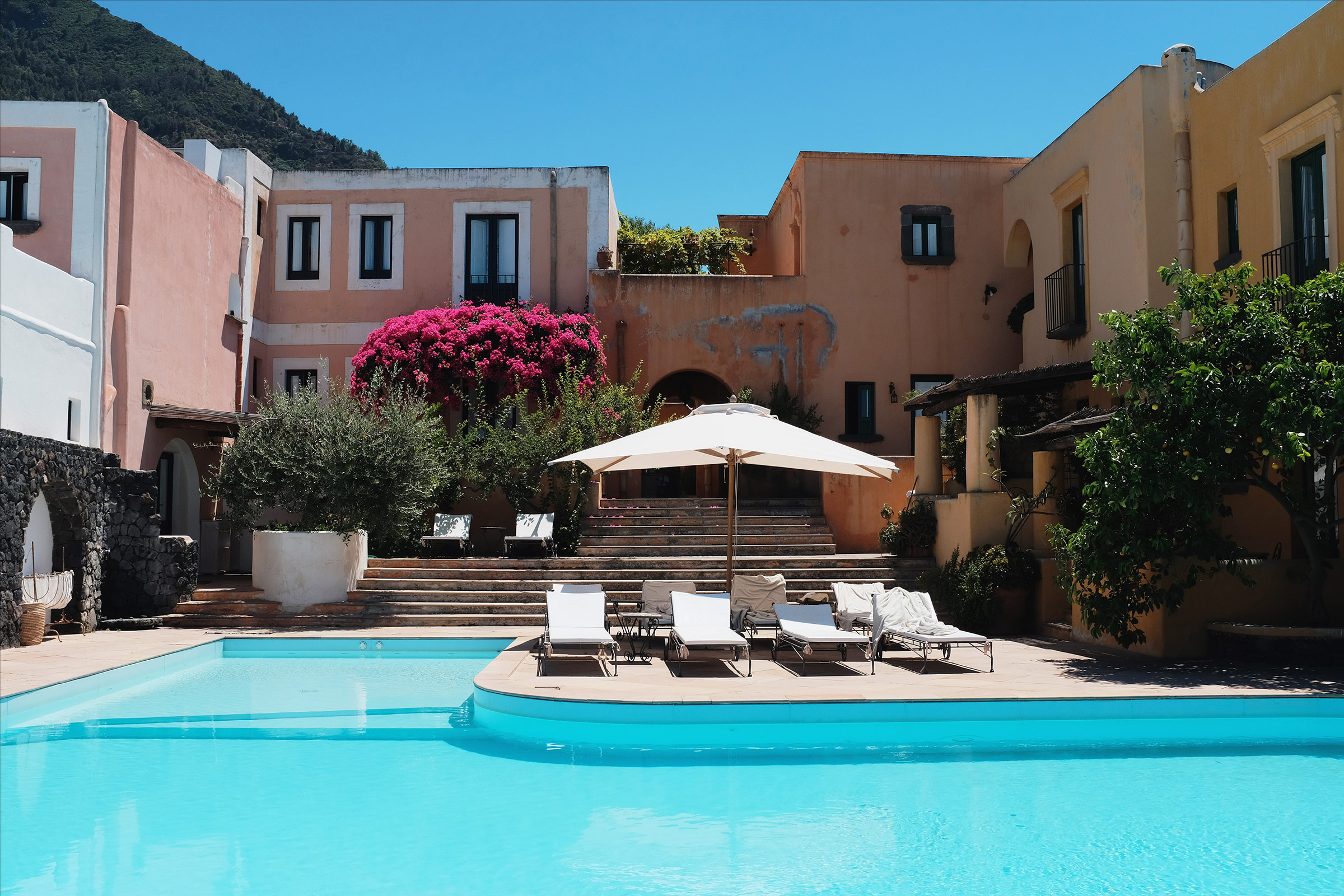
Home > Blog > EXPLAINED – Spain’s Touristic Licence
25 January 2023 | Tags: holiday home , Moving to Spain , property , Rentals , Rents
We explore Spain’s touristic Licence and the different requirements by some of Spain’s automonos regions – who needs it, what is payable and how you apply.
If you wish to learn in more detail about the legal advice we can offer you, please book a consultation today .
What is a touristic license?
The touristic rental is a license that will allow you to rent out your property as a tourist accommodation.
There is no fixed term for a rental to be considered as touristic, but the important feature is its purpose. When it’s rented for tourist, holiday or leisure purposes, a touristic license will be required. Likewise, if it is advertised through a tourism marketing channel, or offered by companies that manage touristic accommodations, a license will also be needed.
When is the touristic license needed?
If the property is rented out to someone who will use your property as their main residence, even if it is for a short period, this license is not needed.
Each region has its own rules and a central Registry of tourist homes and by obtaining the touristic license, your property will be included in such Registry, which can be publicly accessed by anyone.

Which are the requirements / documents needed?
Regardless of where the property is located, in general each property to be rented should have the following:
- All bedrooms and living room must have direct ventilation to the exterior and have some form of system to darken the windows (blinds/shutters);
- Be sufficiently furnished and equipped for immediate use by the number of places to be rented;
- First-aid kit
- A complaints book
Requirements in different parts of Spain
Some special requirements are compulsory depending on where your property is located. For example in Andalucia , a License of first occupation is mandatory. Depending on the age of your property, you may have not have it. In some cases we can obtain an alternative document that will allow registration with the Tourism board. However this has to be analysed case by case.
In Valencian region, prior to registration with the Tourism registry, it is necessary to obtain an urbanistic certificate from the Town hall confirming the property is suitable to be used for touristic rentals. Town Halls charge a fee of approx. 70-90 euros for issuing the certificate and it can take up to 2 months to be issued. It is important to note that in Comunidad Valenciana you must rent the property fully, not by rooms .
Also, it is compulsory to put a sign outside the property that confirm the property is registered with the Tourism registry, same as in the region of Murcia .
In the Canaries a property can only be rented out for touristic purposes if it has a touristic licence and the complex and rentals are managed by an exploitation company.
In the Balearic Islands you need to purchase the license known as “beds”, for the number of guests you intend to have at the property and you cannot have more than 3 houses in a holiday rental as an individual. Some areas in the Balearic Islands could be currently restricted to a maximum of X days/year of holiday rental therefore it is important to check prior to your purchase if your plan is to use the property for holiday rentals.
Are there any fees?
This depends on the region. In Comunidad Valenciana and Andalucia there is no charge for obtaining this license, whilst in Murcia the first one can be obtained for free, but the second one will be paid according to the numbers of places that are available in the accommodation.
This fee would range from 17 € approximately for 2 places to 86 € for more than 8 places.
How long does the process take?
In Andalucia we can help you submitting your application online. In general we will obtain the identification code that must be included in all online advertisement automatically. However, if the property is rustic then it can take a few months until we receive the final registration code.
In Comunidad Valenciana , as we need to obtain the aforementioned urbanistic certificate from the Town Hall beforehand, the process could take a little longer as we would need to receive it before applying for the license itself. Normally, this certificate is received within 2 months.
When can I rent out my property?
You can start renting the property since the moment your application is submitted to the Tourism authorities.
In Andalucia and Murcia typically we will obtain the registration code at the same moment that your application is submitted.
In the Valencian area it typically can take 8 to 12 weeks for the final registration code to arrive, but as said you can start renting the property from the moment your application is submitted to the Tourism authorities.
What are the duties of the Landlord?
Once you start renting it out, you will need to have an accessible complaint’s form, as mentioned before, and also a visible sign outside the property to identify the property as touristic accommodation, if this is located in Murcia and Comunidad Valenciana. This, however, is not required in Andalucia.
Regardless of the region, every landlord must report the identity of the tenants to the Police or Guardia Civil every time a new rental starts, by providing their identification documents.
Finally, in Comunidad Valenciana you must also have a civil liability insurance to cover any potential damages caused during the rental, which can be arranged with any insurance company. Generally, insurance against claims is strongly advisable.
What if there is a change of ownership or I want to deregister my property?
Any alteration has to be informed to the corresponding Registry, so that the information of the touristic accommodation can be updated, or even removed from it, if you don’t wish to continue with the touristic rentals.
Do I have to pay tax on the income I generate?
You are obliged to present quarterly tax returns on income generated and costs incurred in maintaining and handling the rentals. These costs can be deducted, if you are renting the property and you are a tax resident of the EU. If you are using it as a holiday home for you and for your friends the costs are not deductible.
An example of some deductible costs: the community fee, the IBI (Town Hall rates), the mortgage cost that you may be paying if you have a mortgage loan and management company fees if you have a management company dealing with it and any accountancy fees incurred.
Just bear in mind that these costs are deductible only if you are resident in the European union. Moreover, if you generate rental income in Spain then you have got to pay tax in Spain on that income and then you also may have to declare that income in your home country and pay any additional tax there.
For help obtaining a Touristic Licence, payment of tax or with any matters relating to property rental, do contact us . We are here to help.

Written by: My Lawyer in Spain
< Back to blog posts
You may also be interested in...
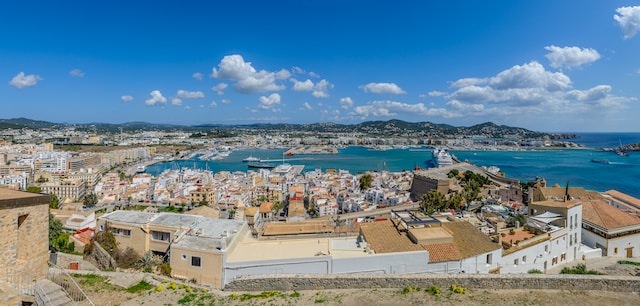
Changes to Inheritance and Donation Tax for the Balearic Islands

Navigating the 90 in 180 Day Rule for Non-Europeans
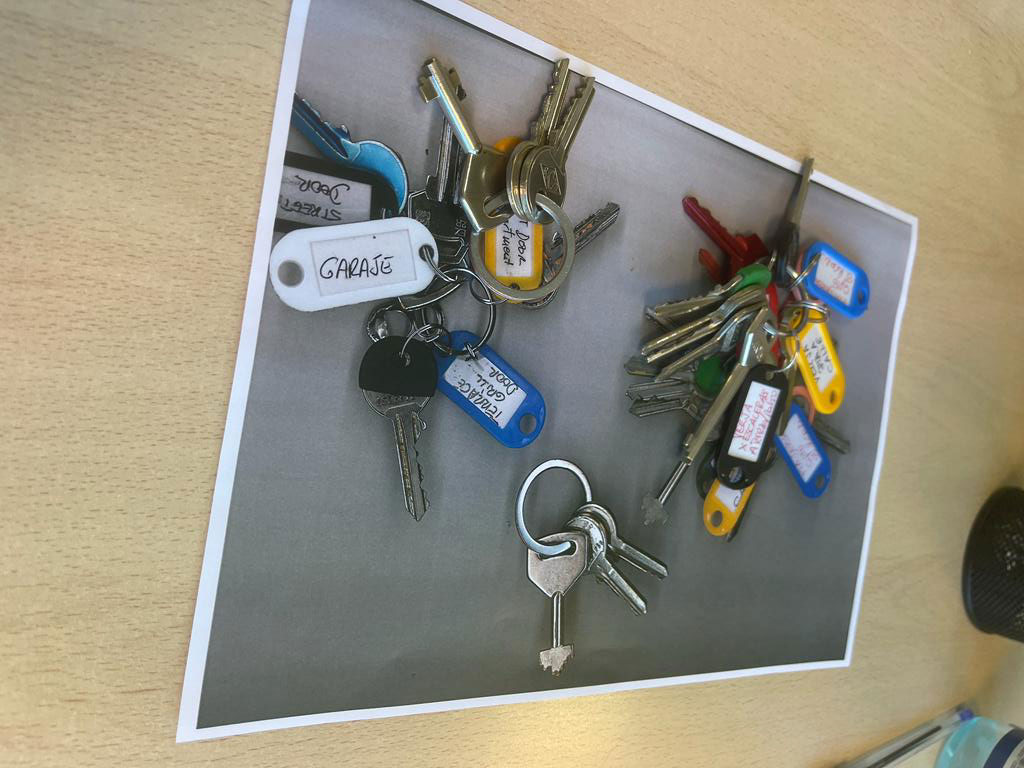
Valuable tips for Potential Spanish Homeowners
Business legal services, spanish property services, personal legal services, ask us for a quote.
We know you will want to know how much your legal advice will cost, so we are committed to confirming costs of our services to you in writing .
Join Our Newsletter
Sign-up today to receive updates:
Your name *
Your email *
Example: Yes, I would like to receive emails from My Lawyer In Spain. (You can unsubscribe anytime)
Testimonials
“My thanks to everyone for completing our Wills so quickly. Excellent service which I shall recommend to all our friends in Spain.” Mr. Davis
We’re sorry, this site is currently experiencing technical difficulties. Please try again in a few moments. Exception: request blocked
Guide to Spain’s travel rules: what are the entry requirements for foreign tourists?
Here is an overview of the current restrictions on visitors coming from the european union, the united kingdom and the rest of the world.

The summer season has arrived and Spain is hoping for an influx of foreign visitors to revitalize its struggling tourism and hospitality sectors. While an uptick in domestic travel is helping, businesses know that the numbers will only add up when the international visitors show up.

Due to coronavirus measures in place, the options for travel to Spain will depend on the reasons for the trip (whether it’s for an essential purpose or for leisure), on the country of origin (part of the European Union or not) and on the visitor’s vaccination status.
But the differences in international mobility will most particularly depend on the visitor’s place of origin. Travel within the EU will be aided by the Digital Covid Certificate , which has been approved for use from July 1 and which Spain is already issuing.
Provided below are the answers to a few common questions about travel to Spain in the coming months.
Are there any restrictions on travel within the EU?
Movement within the EU is allowed, and the access requirements are the same across the territory. To ensure this, Brussels has developed a system known as the Digital Covid Certificate or Digital Green Pass (or more popularly as the vaccine passport), which lets bearers easily prove that they meet the conditions for entering another member state: either being fully vaccinated (the last dose must have been administered at least 14 days before travel), or having recovered from Covid-19, or being in possession of a negative diagnostic test (either PCR or antigen) taken 48 hours before arrival. This certificate is issued by national authorities in the national language and in English, and can be used in all member states.
Depending on the epidemiological situation, travelers from some parts of Europe will not be required to show evidence of vaccination, testing or recovery. These are the areas marked green in the European Center for Disease Prevention and Control’s traffic light system.
Are there non-EU countries whose residents may travel restriction-free?
There is a list of countries and special regions whose residents are not affected by the temporary restriction on non-essential travel to the EU due to their good control of the pandemic. They are Albania, Australia, South Korea, United States, Israel, Japan, Lebanon, New Zealand, North Macedonia, Rwanda, Serbia, Singapore, Thailand, Taiwan, China and the special administrative regions of Hong Kong and Macao (subject to the principle of reciprocity). Visitors from these parts of the world will not be asked for proof of testing, vaccination or recovery. The United Kingdom was on this list as well, but this is changing on Friday due to a spike in infections in recent weeks.
What are the requirements for UK residents?
Starting on Friday, Spain will demand a negative diagnostic test (” NAAT type, e.g TMA, PCR, LAMP & NEAR ,” not antigen tests ) or proof of full vaccination from UK travelers, due to concerns over the delta variant of the coronavirus . These test results must have been issued within 48 hours of arrival into Spain. (Full information is available here at the gov.uk website.)
Is leisure travel to Spain from other non-EU countries allowed?
Visitors from other non-EU countries coming to Spain for leisure purposes must show proof of vaccination with one of the vaccines authorized by the European Medicines Agency (EMA) or the World Health Organization (WHO), with the second dose administered at least 14 days before travel. Non-vaccinated travelers will not be allowed into Spain for tourism, even if they have a negative diagnostic test or have recovered from Covid-19, or if they received a vaccine that has not been approved by the EMA or WHO.
What about children who are not being vaccinated yet?
Children under 12 traveling with an adult who has been immunized with an EMA or WHO-approved vaccine may freely enter Spain.
Are there any exceptions?
Yes. The Spanish government may leave out countries where new coronavirus variants pose a health risk. This is already happening with India, whose residents may not come to Spain on tourism even if they have been fully vaccinated. In practice, leisure trips from Brazil and South Africa are also off-limits since only flights carrying Spanish or Andorran nationals (or passengers in transit) are allowed into the country.
Are any additional documents necessary?
Yes. Regardless of the country of origin, travelers coming in by air or sea, including those in transit and children under 12, must fill out a health form available on www.spth.gob.es or via the mobile app Spain Travel Health. This will generate a QR code that must be shown before departure and at arrival.
English version by Susana Urra .
More information
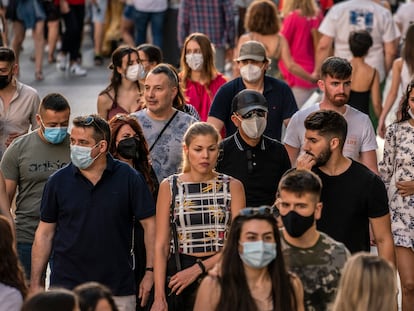
Despite eased rules, outdoor masking endures in Spain
Spain will require travelers from UK to show diagnostic test or be fully vaccinated
- Francés online
- Inglés online
- Italiano online
- Alemán online
- Crucigramas & Juegos

Travel Safe
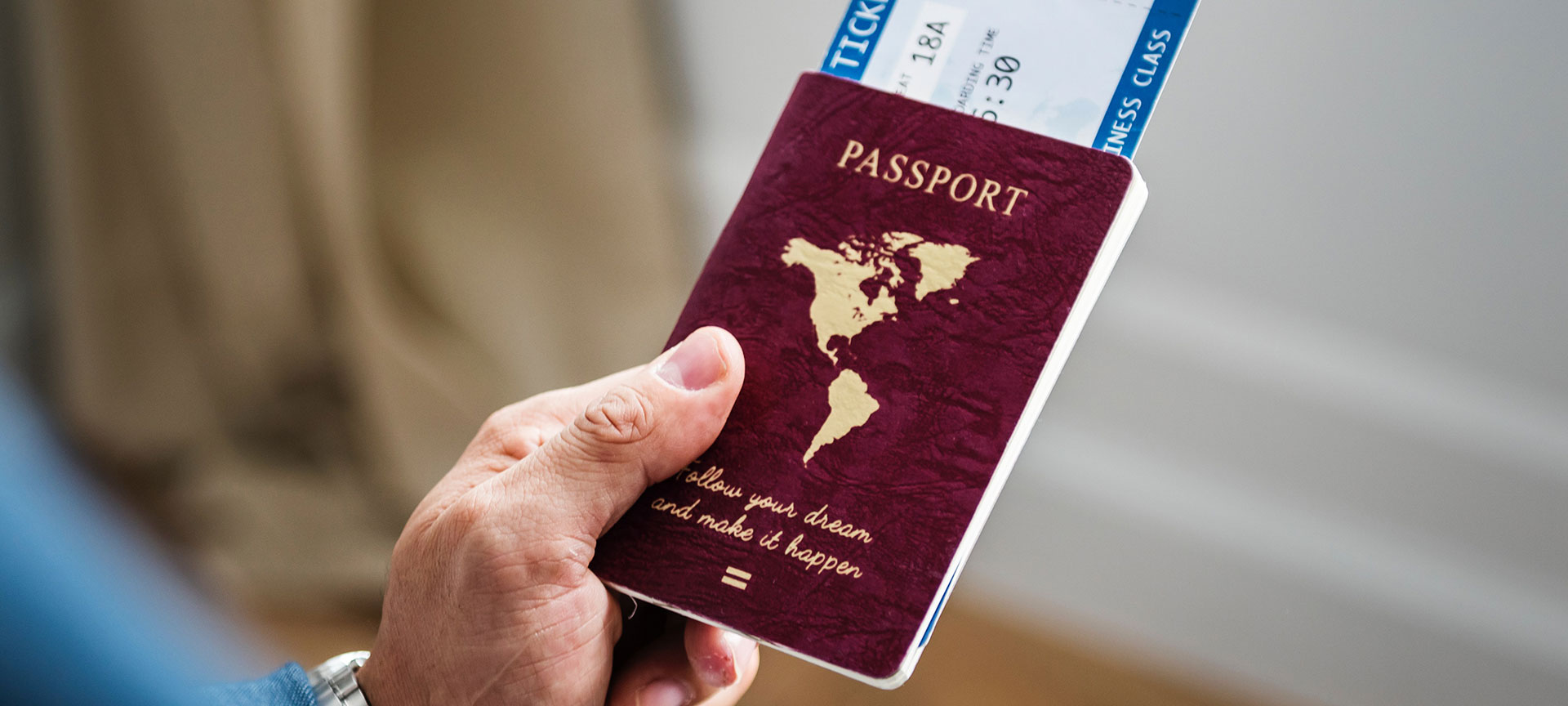
Visa and passport. What should you bear in mind?

Covid19 - Entry requirements in Spain
Beginning on October 21, 2022, the following travelers can enter Spain without showing any sort of covid-19 document/certificate:
- Spaniards and EU citizens.
- Duly registered family members of Spanish and EU citizens.
- Foreigners residing in the European Union or associated Schengen countries (it is necessary to have a valid residence card).
- Foreigners who have a valid long-term visa (no type C visas).
- Foreign students who have the required visa and insurance.
- Foreigners who are highly qualified workers, business people, elite sportspeople, health professionals and health researchers, transport personnel, seafarers and aeronautical personnel and diplomatic, consular representatives, personnel of international organization, military personnel and members of civil protection organizations traveling to Spain for professional matters.
- Foreigners traveling for urgent humanitarian or family reasons, to be justified case by case.
These travelers can enter Spain normally, as it was before the pandemic started.
The rest of the travelers to Spain, even if the covid-19 border checkpoints have been dismantled, they must have one of the three following certificates:
- Proof of vaccination: Documentation from the issuing countries' relevant authorities will be accepted starting 14 days after the final dose is administered, as long as more than 270 days have not passed since the administration of the final dose of the vaccine. For those under 18 years of age, proof of vaccination has no expiration date.
- Negative COVID test: A negative Nucleic Acid Amplification test (PCR, TMA, LAMP, NEAR, etc.) taken within 72 hours of departure for Spain, or a negative rapid antigen test (RAT) taken within 24 of departure for Spain, will be accepted.
- Proof of recovery from COVID: Documentation issued by relevant government authorities or by a physician a minimum of 11 days after the initial positive result via NAAT or rapid antigen test. This documentation will remain valid for 180 days following the date of the initial positive test result.
Those under the age of 12 do not need to present any COVID-related documentation to enter Spain.
Spain Travel Health –SpTH– and the associated form are no longer needed.
How to perform the tourist registration process at La Guardia Civil
- Post author By admin
- Post date 26/10/2018
- No Comments on How to perform the tourist registration process at La Guardia Civil
Whether you manage a rural guest house, camping, hostel or holiday home which you advertise on platforms such as Airbnb, according to the Citizens Security Law from 30th of March 2015, you are required to register all the guests that you accommodate.
“ CHAPTER IV
Special authorities of administrative police security
Article 25. Obligation to register documents.
1 . Individuals or legal entities that perform activities that involve the citizens’ security, such as accommodation , transportation of persons, commercial access to public telephone or online services by means of establishments opened to public (…)”
Of course, but why send the data to La Guardia Civil and not to regular police?
This will depend on whether your accommodation business is located in a locality where there is a police station or not. If you have a one nearby, it is up to you to send the details of your guests to your local police station . If this is not the case, you will have to communicate the details of the people who are staying in your establishment or home to La Guardia Civil.
How to perform the registration process of your accommodation to La Guardia Civil?
- Download the registration form, fill it in and print it out. You can download it here .
- Submit it at the nearest La Guardia Civil station. You can find the location of your nearest station here . Furthermore, you will obtain your log in details to access the platform and register the guests when needed.
- Visit the “ Hospederias” (accomodation) web and log in with the previously obtained details.
REMEMBER: Communicating the data to police or La Guardia Civil does not mean that you can stop completing the guestbook.
Does an application that legally completes the tourist registration process for the authorities exist?
With the Chekin app you can quickly identify your guests wherever you are. With its scanner you will capture all the data pointing to passports or ID cards, they will then sign on the screen and with a single touch you will have sent the data to La Guardia Civil. Your guests’ documentation will be stored in the cloud and sent to you instantly by mail. Easy, safe and in compliance with the law. Download the CheKin app for Android or for iOS.
In case you require more information, we also provide you with the official manual for the property management of La Guardia Civil(Spanish).
*The contents of this blog are solely informative. We suggest to consult any legally binding inquiries with a professional.

Privacy Overview


We will help you buy an apartment in Spain and move to this country. We sell sea transport and real estate in Spain. We advise on registration of a residence permit and other issues. We know how to buy property in Spain. Broadway Consulting +34 699 987 298
What is a tourist licence in Spain and why do I need one?
Many clients ask themselves this question when choosing a property to invest in.
To begin with, it is necessary to distinguish between “tourist” and “long-term” rentals. For long term rentals (half a year, a year, etc.) there is no need to obtain any licence.
Having a tourist licence in Spain is a requirement for short-term rentals (up to 30 days). Without it, you will not be able to place an ad for renting your accommodation on such popular portals as Airbnb , Booking . When issuing a tourist licence, the object is assigned an identification number, which is placed in advertising publications.
The terms of registration of tourist licence in Spain vary from region to region and can range from 60 days to several months. Also before buying a property for the purpose of tourist rental, it is important to find out all the conditions necessary to obtain a licence. The property must meet certain technical requirements.
For example, in the city of Alicante, from 2018, you will only be able to obtain a licence for a flat that is on the ground floor and has a separate entrance. This is to ensure that tourists with suitcases do not disturb the permanent residents of a house with their presence.
We, at Broadway Consulting , provide a tourist licence service in Alicante, Benidorm and Valencia. We can also take on the full management of your property.
For full details, contact us for a free property selection consultation. We will find a favourable investment option to suit your budget!
By Signing up you are agreeing with our Terms and Privacy Policy .
Don't have an account? Sign up
Sign in/Register
Forgot your password?
Feedback is welcome
- Information
- Buying in Spain
- Understanding Spain’s tourist licence for holiday rental properties
Considering a holiday rental?
Can i rent my property without a tourist licence, how to apply for the tourist rental licence, general regional requirements, renting out your property: when and how.
In recent years, the allure of Spain as a holiday destination has not waned, with its sun-soaked beaches, rich history, and vibrant local cultures attracting visitors from all over the world. For property owners, this presents a lucrative opportunity to earn extra income through short-term holiday lets. However, navigating the complexities of Spanish regulatory requirements, particularly when it comes to obtaining a tourist licence, can be daunting. This comprehensive guide aims to demystify the process, equipping you with everything you need to know about securing a tourist licence for your Spanish property.

Renting out your Spanish property to tourists isn't as straightforward as listing it online. To operate within the law, you'll need a tourist licence – a legal requirement that ensures your property meets certain standards and regulations specific to holiday accommodation. The process and criteria for obtaining this licence vary significantly across Spain's 17 autonomous regions, each setting its regulations concerning tourist lets.
It is important to remember that renting out your apartment for short-term holiday stays, which is heavily regulated, is completely different from a long-term rental. The main motive behind introducing these regulations was to ensure quality of service, adherence to safety standards, and tax compliance.
A Tourist Licence doesn’t have a fixed duration that categorises a rental property as ‘touristic’; rather, its purpose is what matters. If a property is rented out for tourist, holiday, or leisure purposes, and especially if it's advertised on tourism marketing channels or managed by companies that specialise in holiday accommodations, then a tourist licence becomes a legal requirement.
While it might be tempting to sidestep the process, renting out your property without a tourist licence is not advisable . Fines for non-compliance can be steep, ranging from hundreds to even tens of thousands of euros. Additionally, online platforms like Airbnb and Booking.com now require that you list your licence number on the advertisement, meaning it’s increasingly difficult to rent without one.
However, not every rental scenario in Spain needs a tourist licence. For instance, if your property is rented out as someone's principal residence - even for a brief period - a tourist licence isn't required. The distinction lies in the rental's intended use. Should your property cater to leisure and holiday seekers, acquiring this licence is compulsory.
Who can get a tourist rental licence?
Any property owner in Spain can apply for this licence, whether you're a local resident or an international investor. However, you must ensure your property meets the specific regulations set out by the autonomía , or region, where it's located.
One common thread across regions is the variance in the application process and associated fees. For instance, some regions like the Comunidad Valenciana and Andalucía do not charge for the acquisition of this licence, whereas others do, with fees structured around the accommodation's capacity.
The application process's duration varies; in Andalucía , for example, applications can be submitted online with immediate issuance of an identification code for advertising purposes, barring properties classified as rustic. In the Comunidad Valenciana , obtaining the urbanistic certificate precedes licence application, extending the timeline to potentially 2 months.
Regardless of the region, the first step to securing a tourist licence involves visiting your local town hall ( ayuntamiento ) and completing the necessary paperwork. Approval hinges on your property meeting specific criteria, from safety regulations to accommodation standards. It's worth noting that in some cities, obtaining a new tourist licence may be impossible due to local restrictions. For instance, Barcelona, a hotspot for tourists, has halted the issuance of new licences altogether. In such cases, purchasing a property that already possesses a tourist licence remains the only option for aspiring landlords.
The application process for a tourist licence varies significantly between regions, but here are some general steps to follow:
- Check Local Regulations: Before anything else, verify with your local Town Hall or Comunidad Autónoma what the specific requirements are for your region.
- Apply Through Official Channels: You'll typically need to submit your application and accompanying documentation to the local Tourism Registry or equivalent authority.
- Prepare Your Property: It must comply with safety and quality standards applicable to your area.
- Submit Documentation: This usually includes a deed of ownership or equivalent, cadastral certificate, and proof that your property is free from fines and legally habitable.
- Inspection: In some cases, an inspection of the property may be required before approval.
- Receive Licence: If your application is successful, you'll receive a licence number that must be displayed on all rental advertisements.
Requirements of the property
Property requirements again depend on the region, but they typically include:
- Documentation: A deed of ownership, cadastral documentation, and a certificate of occupancy are often required.
- Safety: Working smoke detectors, emergency contact numbers, fire extinguishers, and first aid kits are standard.
- Insurance: It's imperative to have public liability insurance to cover accidents or injuries.
How much does it cost?
The cost to apply for a tourist licence can range from as little as nothing to a few hundred euros, depending on the region and specific requirements.
The criteria and regulations surrounding holiday lets fluctuate not just between autonomous communities but also between cities and rural areas within those communities. Let's explore a few examples to underline the diversity of requirements across Spain:

- Short-term lets capped at two months.
- The option to rent out individual rooms, provided the owner resides in the property.
- Mandatory external ventilation, temperature control, and a declaration of responsibility by the owner.
Valencian Community
- Properties require an urbanistic certificate to confirm your property is suitable for touristic rentals obtainable from the local Town Hall for a fee.
- Renting out properties room by room is not permitted; it must be let out in its entirety.
- Signage, confirming registration with the Tourism registry, be displayed outside the property.
- Let durations cannot exceed one month.
- A habitability certificate is requisite.
- Prior notification to the local town hall for each new set of guests is required.
Canary Islands
- This region’s approach to holiday lets focuses on ensuring temporary, whole-property rentals only. Each island might impose additional rules, stressing the importance of consulting local town halls before proceeding.
- The acquisition of a certificate of suitability for housing tourists by an authorised architect.
- Informing the local town hall about each new rental.
Balearic Islands
- The Balearic Islands have a unique system where you purchase a licence for the number of guests you intend to accommodate. Restrictions apply to the number of properties you can rent out and potentially the duration of holiday lets.
The examples above underscore the variability in regulations across Spain. Other regions, such as the Balearic Islands and Extremadura, possess their own unique sets of rules that can further complicate the application process for a tourist licence. It is pivotal to research and understand the specific requirements of the region where your property is located. This cannot be overstated, as compliance with local regulations is essential for the legal operation of holiday lets.
The importance of neighbourhood communities in the application process
An often-overlooked aspect of securing a tourist licence is the role of neighbourhood communities. Especially in regions like Andalusia, opposition from local communities can derail your application. This highlights the necessity of fostering good relationships with your neighbours and ensuring your holiday letting activities align with community standards and expectations.
You're allowed to commence renting out your property from the moment your application is submitted to the Tourism authorities. Registration codes, necessary for advertising your offering, are typically issued upon application submission in Andalucía and Murcia, with the Comunidad Valenciana taking slightly longer.
Duties of the property owner
With the licence comes responsibility. Landlords are obligated to maintain an accessible complaints form, report tenant identities to local law enforcement for every rental cycle, and in certain regions, like the Comunidad Valenciana and Murcia, display a visible sign identifying the property as a touristic accommodation. Additionally, holding civil liability insurance is a requisite in some areas to cover potential damages during rentals.
Taxation: Not to be forgotten
Owning a touristic rental property isn't just about managing bookings; it's also about staying compliant with Spanish tax laws. Landlords must file quarterly tax returns on income generated from rentals and can deduct certain costs if they are tax residents of the EU. It's crucial to be aware that generating rental income in Spain mandates taxation in Spain, and this income may also need to be declared in your home country.
Securing a tourist licence for your apartment may seem daunting at first, but with research and proper preparation, it can be a straightforward process. Ensure your property meets all requirements, understand the costs involved, and always remain compliant with tax obligations . With these steps, you can turn your Spanish home into a successful vacation haven for travellers and a valuable source of revenue for yourself. Whether you're just embarking on this journey or looking to streamline your existing operations, staying informed and seeking professional advice will safeguard your interests and contribute to a thriving rental business. Why not reach out to legal experts who can assist you with tourist license application?
ThinkSPAIN Team
Last updated: 22/05/2024
Was this article useful?
The information contained in this article is for general information and guidance only. Our articles aim to enrich your understanding of the Spanish property market, not to provide professional legal, tax or financial advice. For specialised guidance, it is wise to consult with professional advisers. While we strive for accuracy, thinkSPAIN cannot guarantee that the information we supply is either complete or fully up to date. Decisions based on our articles are made at your discretion. thinkSPAIN assumes no liability for any actions taken, errors or omissions.
Related Topics
Share this article
Related Articles

What to look out for when viewing property for sale in Spain
Visiting the house that could become your new home is a key moment of the buying process....

Spanish property viewing trips: Why they are important and how to prepare for them
In the current era where digital convenience allows us to virtually tour homes from the...

How to buy a property in Spain as a foreigner: step by step
Buying a property is one of the biggest moments in many people's lives. In this...
Looking for something else?
- Find what you're looking for on our homepage
- Moving to Spain
- Retiring in Spain
- Living in Spain
- Working in Spain
Recent Articles
11 min read
Cookies on GOV.UK
We use some essential cookies to make this website work.
We’d like to set additional cookies to understand how you use GOV.UK, remember your settings and improve government services.
We also use cookies set by other sites to help us deliver content from their services.
You have accepted additional cookies. You can change your cookie settings at any time.
You have rejected additional cookies. You can change your cookie settings at any time.
Register to vote Register by 18 June to vote in the General Election on 4 July.
- Passports, travel and living abroad
- Travel abroad
- Foreign travel advice
Entry requirements
This information is for people travelling on a full ‘British citizen’ passport from the UK. It is based on the UK government’s understanding of the current rules for the most common types of travel.
The authorities in Spain set and enforce entry rules. If you’re not sure how these requirements apply to you, contact the Spanish Embassy in the UK .
COVID-19 rules
There are no COVID-19 testing or vaccination requirements for travellers entering Spain.
Passport validity requirements
Spain follows Schengen area rules . Your passport must:
- have a ‘date of issue’ less than 10 years before the date you arrive – if you renewed your passport before 1 October 2018, it may have a date of issue that is more than 10 years ago
- have an ‘expiry date’ at least 3 months after the day you plan to leave the Schengen area
Check with your travel provider that your passport and other travel documents meet requirements. Renew your passport if you need to.
You will be denied entry if you do not have a valid travel document or try to use a passport that has been reported lost or stolen.
Visa requirements
You can travel without a visa to the Schengen area , which includes Spain, for up to 90 days in any 180-day period. This applies if you travel:
- as a tourist
- to visit family or friends
- to attend business meetings, cultural or sports events
- for short-term studies or training
The requirements for working in Spain are different.
If you’re travelling to other Schengen countries as well, make sure your whole visit is within the 90-day visa-free limit. Visits to Schengen countries in the 180 days before you travel count towards your 90 days.
If you are visiting Spain and need to extend your visa-free stay for exceptional reasons, such as a medical emergency, you must apply to the immigration authorities (‘Extranjería’) (in Spanish).
Make sure you get your passport stamped on entry and exit.
If you’re a visitor, border guards will look at your entry and exit stamps to check you have not overstayed the 90-day visa-free limit for the Schengen area.
If your passport is missing a stamp, show evidence of when and where you entered or left the Schengen area (for example, boarding passes or tickets) and ask the border guards to add the date and location in your passport.
British nationals living in Spain do not need their passports to be stamped. Actively show your proof of residence, such as the foreigner’s identity card (‘la tarjeta de identidad de extranjero’ or ‘TIE’), when presenting your passport at Spanish border control.
At Spanish border control, you may need to show:
- a return or onward ticket
- proof of your travel insurance
- you have enough money for your stay - the amount varies depending on your accommodation
- a hotel booking confirmation or proof of address if you’re staying at your own property
- an invitation or proof of address if staying with a third party, friends or family, such as a ‘carta de invitation’ completed by your hosts
Using the e-gates
Use the desks staffed by border officers. If you’re aged 18 or over, and airport staff instruct you to, you may be able to use e-gates when they are working.
If you use an e-gate, make sure you get your passport stamped.
Staying longer than 90 days in a 180-day period
To stay longer, you must meet the Spanish government’s entry requirements . If you’re in Spain with a residence permit or long-stay visa, this does not count towards your 90-day visa-free limit.
Read more about passport stamping if you live in Spain .
If you cannot return to the UK before your visa-free limit expires, contact the Spanish government’s national information service . Dial 060 from a Spanish phoneline (in Spanish, with English speaking operators available).
Travelling between Spain and Gibraltar
Spanish border checks can cause delays when crossing between Spain and Gibraltar. If you are travelling to Spain through Gibraltar, check the travel advice for entry requirements for Gibraltar .
There is no charge to enter or leave Gibraltar. Do not hand over money to anybody claiming there is a charge.
Unaccompanied minors
Spanish law considers anyone aged 17 and under to be a minor. If an unaccompanied minor comes to the attention of the Spanish authorities (particularly in connection with criminal incidents or when in hospital), they will be considered vulnerable and may be taken to a minor’s centre until a parent or guardian is found.
Vaccine requirements
For details about medical entry requirements and recommended vaccinations, see TravelHealthPro’s Spain guide .
Customs rules
There are strict rules about what goods can be taken into and out of Spain (PDF) . You must declare anything that may be prohibited or subject to tax or duty.
Taking food into Spain
You cannot take meat, milk or products containing them into EU countries . There are some exceptions such as powdered baby milk, baby food and special foods or pet feed required for medical reasons.
Taking money into Spain
Declare cash or travellers cheques if the value is 10,000 euros or more. You will get a certified declaration to show you brought it in with you. If you do not, your money could be seized when you leave.
Related content
Is this page useful.
- Yes this page is useful
- No this page is not useful
Help us improve GOV.UK
Don’t include personal or financial information like your National Insurance number or credit card details.
To help us improve GOV.UK, we’d like to know more about your visit today. Please fill in this survey (opens in a new tab) .

Apply for VISA to Spain

Welcome to the Spain Visa Application Centres
Please select the region and country you wish to apply from

- [email protected]
- +34 662 17 40 67

Conditions and Requirements for Entering Spain in 2023

Spain is one of the world’s top destinations for foreigners from all over the world, both for those doing tourism and those who intend to stay for the long run.
However, the frequent changes in the current pandemic situation daily generate tons of doubts for those travelers, since the regulations for entering the country are constantly being modified and renewed.
Thus, in this article we analyze in detail how to enter Spain in 2023 , what requirements you will have to meet (updated) both if you enter for tourism or to get your residency, and all the health information you should consider to avoid entry problems depending on your country of origin.
How to enter into Spain in 2023
The first thing you must take into account to enter Spain during 2023 is that you will have to comply with 2 different set of requirements .
While until now foreigners had just to consider the requirements imposed at the immigration level (for example the need to get a tourist visa); now the sanitary requirements play an important role too.
Thus, in this article you will find the complete list of requirements that must be met (updated for this new year), both from the legal and the sanitary point of view.
Keep in mind that both groups of conditions are regulated at the European level, since entering the EU through Spain allows you to freely move to another country within the Schengen area , although it is true that there may be health differences (stricter requirements) depending on the specific country .
Therefore, to ensure a successful entry you must make sure to meet each and every one of the requirements that we will see below.
And keep in mind that these will be verified both upon landing and having entered the Spanish territory and even before leaving when you are still in your country of origin . Because many times airlines themselves are the ones who carry out those controls and can prevent you from boarding.
Health requirements to enter Spain
Below we analyze the health requirements that currently exist for foreigners intending to enter Spain.
But be careful.
These are very volatile and can change almost overnight , especially with the constant irruption of new waves.
Hence, we recommend that before purchasing your airline tickets you double-check and verify them on the official Spanish government website.
On the other hand, every month Spain updates the list of countries and territories that have no restrictions to enter Spain . Make sure that yours is on this list to be able to make your trip .
So, what are these sanitary requirements?
- Temperature control , which will probably be done at the airport of origin to verify that your temperature does not exceed 37.5ºC.
- Complete vaccination or…
- In case of coming from a country or area at risk, you must present a PCR test (SARS-CoV-2) with a negative result performed within 72 hours prior to arrival in the country.
- Fill in the SpTH entry form , in which you must state your personal data, where you will be staying, etc. You can find it her e and once completed you will receive a QR code that the authorities will request upon landing.
Do I currently need a PCR to enter Spain?
Currently yes . Whether you come from an EU country or a third country, you will need a PCR test with a negative result .
This test must be official and original, written in English or Spanish, and must include:
- The traveler’s full name
- Date the test was performed
- Identification details of the center that performed the test
- Passport or ID card number
- Negative test result
Entry requirements according to your country of origin
To make things easier and more understandable for foreigners, the Spanish Ministry of Health has launched a map where you can find the health entry requirements that you must meet according to your country of origin .
Simply click on the following link, select on your country of origin, and a window will be displayed including all the relevant information (as well as whether you are prohibited entry for health reasons):
Access this map here
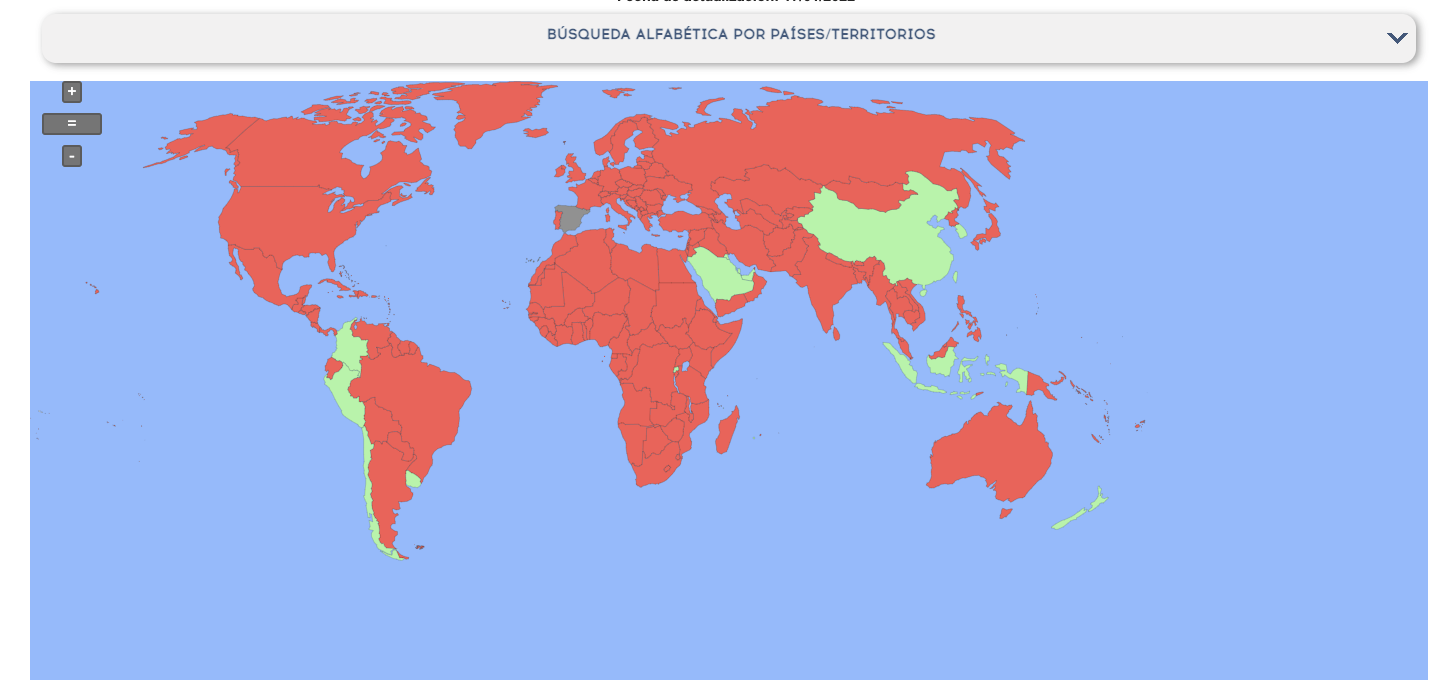
Immigration entry requirements
On the other hand, we also find the requirements that you will have to comply with at a legal level during 2023 in order to enter the Spanish territory.
They are the same that we have already seen and explained in detail in this other article , but here is a summary:
- Demonstrate the possession of sufficient economic means to support yourself throughout your stay. We are talking about 90€ per day and person.
- Round-trip plane tickets , which must coincide with the days of stay accredited economically in the previous point.
- Proof of accommodation . This can be demonstrated through an invitation letter if you will be staying with a friend or relative ( find out how to request it here ), or an already paid hotel/tourist apartment reservation.
- Health insurance for the days you will stay in Spain
And, in addition, you should check whether or not your country requires a Schengen visa to enter as a tourist ( find out here the complete list of countries that must apply for one ).
In case you need to obtain this visa, you will have to do it at the Spanish consulate located in your country of origin where you will have to prove all the requirements seen in this section.
And, in case you do not need it, these requirements will be demonstrated when you land in Spain.
All your doubts to enter Spain solved here
So far all the requirements you must meet during this year 2023 to successfully enter Spain .
Please note that health requirements are subject to change, so this information may become obsolete quickly.
Hence, if you have any doubts or need personalized legal advice, our immigration lawyers are at your complete disposal!
Get in touch with our lawyers and let us guide you step by step:
Use my online scheduling page by vcita to schedule an appointment with me:

Recent Posts
- Residency for Humanitarian Reasons in Spain
- How is Social Security Healthcare for Foreigners in Spain
- Residency for Spanish Citizens’ Parents Over 65 Years Old
- Startup Law in Spain: What benefits does my business have if I am a foreigner?
- Main Advantages of Being a Digital Nomad in Spain
Subscribe so you are up to date with all immigration news in Spain
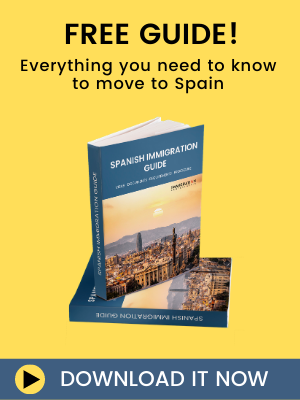
Leave a Reply Cancel reply
Your email address will not be published. Required fields are marked *
¡Suscríbete a nuestra newsletter! | Subscribe to our newsletter!

- Rambla de Catalunya 124, 08008, Barcelona (Spain)
Blog What we do Who we are Immigration FAQ’s Contact us Cookie policy Privacy policy
Spain Visas & Residency, Padron Registration & NIE
How to apply for Spanish residency, register with local authorities, obtain NIE in Spain: costs, steps and documents you need for your application

Reduce Your Health Insurance Costs Abroad
Find the best rates available by comparing quotes from the leading health insurance providers
US, UK, and Canadian citizens, among others, can enter Spain without a visa for trips less than 90 days. However, you can only travel for 90 days in any 180-day period, meaning you can spend a maximum of six months in every 12 in the country, with three-month intervals.
If you plan to stay for longer or live in Spain permanently, you will have to obtain a long-stay visa that will allow you to apply for residency in Spain.
Spain visa options for non-EU citizens
There are different kinds of long-stay visas; here’s the list of the most popular options for people moving to Spain independently:
Non-lucrative visa
The non-lucrative visa is also known as the retirement visa.
To be eligible for this visa, you must have evidence of either €30,000 in a bank account or a monthly income of €2,130 from your pension. This increases to around €2,600 for a couple, although the amounts may change.
Also, a retirement visa is only given on the condition that you won’t undertake any paid work for the duration of your stay in Spain. This includes remote work, but after the first 12 months, you can convert it into an employment visa.
The initial application is completed at the Spanish embassy in your country of residence, but subsequent renewals must be completed at your local town hall in Spain. They will put you on the padrón municipal list, although this isn’t the same as being registered as a Spanish resident.
Required documents
- The completed visa form .
- A passport or travel document recognized by Spain: Your passport must be valid for at least 12 months and contain at least two blank pages. Also, provide a copy of all the pages in your passport.
- A passport photo.
- Proof of sufficient funds .
- Private health insurance policy: Obtain coverage from an insurance company licensed to operate in Spain.
- A medical certificate: Issued within three months of your visa application, stating that you do not suffer from diseases that can represent a serious risk to public health.
- A certificate of criminal record: This must be issued by the country where you have lived in the previous five years. The certificate must be issued within the last three months.
- If not a national of your current country of residence: Show proof of a valid residence permit and provide a copy of it.
- For dependents who are your spouse or partner: Submit your marriage or civil partnership certificate.
- For dependent descendants: You need to provide their birth certificate.
Ensure that your marriage certificate and birth certificates are translated (sworn translation) and legalized through the consular representatives of the issuing country or carry the Hague Apostille unless they were issued by an EU member state.
After obtaining the non-lucrative visa stamp in your passport for Spain, you have a one-month window to enter the country and initiate the application for your Foreign Resident Card (Tarjeta de Identidad de Extranjero).
This usually happens at a national police station in the area you’ve designated as your place of residence.
Your first permit lasts for 12 months, and the next two renewals are two years each, totaling five years. Once you reach this point, you can apply for full residency status.
For UK citizens moving to Spain, our Living In Spain After Brexit guide helps navigate the post-Brexit changes in immigration, taxation, healthcare, and other issues.
Spanish entrepreneur visa
The first type of investment visa is the Entrepreneur Visa. This is for people looking to set up a business in Spain. It’s either issued as a new visa or as an extension of a different kind of visa.
To be eligible, you must have a business plan that’s approved by the Spanish government and evidence of appropriate funding.
Unlike other EU countries, Spain doesn’t have an official guideline as to how much funding you need. Presumably, it needs to be appropriate and proportional to your business model.
You must also supply evidence that you can support yourself financially while in Spain, must have evidence of healthcare, and have all documents translated into Spanish.
You can apply through the Spanish consulate in your home country.
The investor visa (Golden Visa)
One area where Spain matches other EU countries is in the requirements for their golden visa program. The most common method of obtaining this visa is through purchasing property worth at least €500,000 , but other options include:
- Making an investment in Spanish public debt worth at least €2,000,000.
- Make a deposit in a Spanish bank or buy shares worth at least €1,000,000.
- Invest a significant amount of money in a new business (no specific amount).
You must be committed to investing when applying for the visa. A golden visa covers you for 12 months, after which it can be exchanged for a residence permit.
Bear in mind that the golden visa covers family members, including spouses and children under the age of 18.
You can use the golden visa to obtain permanent residency after five years of living in the country (for at least six months of the year). Alternatively, you can renew the permit indefinitely if you don’t plan to live in Spain.
If you have questions or need more information, see our EU Golden Visa guide for full options, or contact us via our page on Residency and Citizenship . We will be happy to help.
Spain digital nomad visa
The digital nomad visa offers a flexible residence permit extendable up to 5 years, enabling non-EU citizens to work remotely while living in Spain.
Unlike the non-lucrative visa, this option explicitly permits remote work.
You can either apply directly from Spain with a tourist visa for a 3-year card or apply in your home country via a Spanish Consulate for a 1-year visa convertible to a 3-year card upon entry to Spain.
The digital nomad visa caters to two main groups:
- Employees whose company permits remote work and travel, allowing them to work from Spain.
- Self-employed individuals with clients or online income sources located outside of Spain.
To qualify for the digital nomad visa, here are the key criteria:
- Work must be for companies located outside Spain, with no more than 20% of income from Spanish sources.
- Minimum three months of working relationship or freelance work with clients before applying, with a 1-year contract.
- Maintain a yearly salary of €30,240 (€2,520 monthly).
- Demonstrate either three years of prior work experience or hold a degree from a reputable institution.
- Clear criminal record, validated by a criminal records certificate dated within 90 days and legalized.
- Fill out the application form and pay the administrative fee of €790.38.
- Obtain private health insurance covering Spain.
- Depending on employment type (employee or freelancer), provide proof of the company’s operation for at least one year (for employees) or specify remote work terms and conditions (for freelancers).
Tax benefits for remote employees
For remote employees of foreign companies in Spain, taxation operates under the Non-Resident Income Tax Regime. If you haven’t resided in Spain for the past 5 years, you’re eligible for a flat tax rate of just 24% on your income instead of facing a progressive rate that could reach up to 48%.
The application for this tax status is a separate process from residency and should be completed with the Spanish Tax Agency within six months of obtaining your residency authorization.
The most popular Spanish visas – comparison
The most popular visas are non-lucrative, golden visa, and digital nomad visa.
Here’s how they compare:
- *IPREM sets the minimum amount of an individual’s earnings. The IPREM for 2023 is €600 per month. You must show €2,400 as a regular guaranteed monthly income or a yearly income of €28,800.
- ** Spanish minimum wage is currently set at €1,050 a month.
EU Blue Card for highly skilled professionals
EU Blue Cards offer highly qualified non-EU nationals an opportunity to reside and work within EU nations, including Spain.
Key eligibility criteria for the EU Blue Card include demonstrating a higher professional qualification spanning a minimum of three years or possessing at least five years of professional experience at a similar level.
Additional conditions include:
- A job offer from a Spanish employer for a paid position (self-employed individuals are ineligible)
- The offered job should pay a salary of at least one and a half times the average wage in Spain (or 1.2 times for high-demand roles)
- The job contract must be for a minimum of one year
- Health insurance coverage for oneself and accompanying family members
- Compliance with legal requirements for professional practice, if applicable
Applications for the EU Blue Card are facilitated by the Spanish employer, involving submission of relevant documents regarding the job, qualifications, passport, and health insurance details. The EU Blue Card is initially valid for one year, extendable upon meeting the specified conditions.
Residency in Spain (Residencia)
To live in Spain permanently, you need to register as a foreign resident. For this, you need to be added to the Central Register for Foreign Nationals or Registro Central de Extranjeros .
Where to apply for your Spanish residency certificate
You need to book an appointment online at your nearest National Police station to submit your application and all the documents (the requirements vary according to your visa).
You can also apply at the Oficina de Extranjería – the immigration administration office of the Spanish government. Every main city in each province in Spain has a branch of the Oficina de Extranjería .
Once you are on the Register, you will be issued with a Resident Certificate – Certificado de Residente – which will include the date of registration, your name, address, nationality and NIE number.
Permanent residency in Spain
If you have lived in Spain for five years and already have Certificado de Residente, you can apply for permanent residency if you wish to.
You will need to use the same forms and pay the same tax. No additional paperwork should be required. However, the authorities might ask for proof you have been living in Spain for five years.
For this, keep your bank receipts, rental contracts, utility bills, and any other official letters with your name and address from the very beginning of your settlement in Spain.
What’s an NIE and why you need one
An NIE or foreigners’ identification number is the expat equivalent of the local Spaniards’ DIE or Documento Nacional de Identidad. It is a bit like the British National Insurance number and is necessary when you deal with various local or state services.
An NIE number is mandatory for all foreigners with financial, professional or social affairs in Spain, regardless of whether they are a resident or non-resident in Spain.
You are asked for it if you buy a property in Spain , buy or insure a car in Spain , if you want to open a Spanish bank account , or set up utility bills or sign up for the Spanish state healthcare system . You will also need it if you conduct any financial and/or professional in Spain, regardless of whether you are a resident or non-resident in Spain.
Children also need an NIE number in order to, among other things, get social security.
In short, any paperwork you must do in Spain as a foreigner will require the NIE number.
You will be automatically issued an NIE when you apply for your Residency Certificate.
Applying for an NIE only
If you don’t need a residency in Spain (if, for example, you aren’t going to spend more than 3 months in a year in Spain), you can apply for an NIE only.
The application procedure may vary depending on where in Spain you apply. Generally, to obtain an NIE number, you need to:
- Fill out the NIE application form (EX-15). You can download the form online and print it out, or you can get it at any NIE office. You must fill in the form in Spanish. If you need help with it, there is advice available online, just google “filling in EX-15 form Spain”.
- If you’re already in Spain, go to your nearest police station or Oficina de Extranjeros. Outside of Spain, find a Spanish Consulate (the “ Consulate dept legalizaciones ”, not the Embassy) to submit the documents.
Together with two originals of EX-15 form you need to file in the following:
- Your passport and a copy of your passport (all pages)
- A small fee, payable at the bank using a 790 NIE form. This can now only be filled in online and printed out. Find the form online and take it to any bank to pay before going to the police station
You need to book an appointment at the National Police Station. It can be done online.
You will be given a white certificate with the number on it. In some cases, you may be asked to collect it another day. NIE numbers always begin with the letter X, Y or Z.
Registering on a Padron
All Town Halls in Spain keep a register of the residents of their area – the Padron. It’s used by the government and local authorities to make sure they know how many people live in the area.
If you live in Spain for more than six months in a year, you should register on the Padron.
You will find you need it when registering with a family doctor, or applying for facilities offered via Social Security or sending your children to a local school.
You need to apply at your local Town Hall. Make sure you know the requirements – they differ from area to area.
Normally, you would need the following:
- Your original passport and a photocopy
- Your title deeds and a photocopy if you own a property
- Your rental contract in Spanish and a photocopy if you’re renting
The certificate confirming your registration on the Padron only lasts for 90 days. You will only need the certificate when you are asked to prove that you are registered.
It doesn’t happen so often, but when you need it, you just visit your local council to get a fresh one.
If the prospect of doing all this paperwork on your own terrifies you, you can always recruit a local helper – gestor. Find out more in our guide to Using Gestorias In Spain To Help With Your Paperwork .
You might find useful:
- Living In Spain – all you need to know to move to and settle down in Spain: paperwork, healthcare, housing, the cost of living, banking, taxes, etc.
- Best Places To Live In Spain – the best and most popular expat locations in Spain.
- Haven’t found what you were looking for? Contact us or comment below with your question and we’ll do our best to help.

Ola Degteva
Ola is a Content and Research Director at Expatra. Coming from a teaching and research background, she has been working in online publishing since 2010 when she became an expat. Having done 3 major international moves herself, Ola knows exactly what relocation and settling down in a new country involves and how important it is to plan ahead to make moving abroad less stressful.
Comments and Questions
roy huxtable
at the moment i am selling my property in the uk not sure how long this will be.can i stat a bank account before i get to benidorm. and to buy a place outright do i need the nie number, trying to get my head around everthing. just need to no how long wouid it take roughly to but and move in right away

Hi Roy, You do need NIE for purchasing your property, you can get it from a Spanish consulate: https://www.exteriores.gob.es/Consulados/londres/en/ServiciosConsulares/Paginas/Consular/NIE.aspx To open a bank account in a regular Spanish bank, you need to be there personally, your solicitor or your estate agent in Benidorm can advise you on the best banking option. Hope this helps,
Leave your comments or questions (Cancel Reply)

Explore Spain: Visa Requirements To Must-Visit Places — All You Need To Know For Your Visit
A re you a fan of Zoya Akhtar’s Bollywood hit " Zindagi Na Milegi Dobara " and waiting for your moment to be in Spain? Then it is time to plan your trip to Europe’s second most visited country. With glorious mountain ranges, warm Mediterranean waters, rich history, culture, and delicious cuisines to attract tourists from around the globe, tourism is one of the most contributing factors to Spain’s economy.
Spain has over 3,000 miles of coastline and about 48 UNESCO World Heritage sites making it a blend of nature and historical places. Featuring some of the most exquisite destinations like Barcelona, La Sagrada Familia Basilica, Madrid and its famous Prado art museum, and the Costa del Sol with warm, picturesque beaches Spain has everything to satisfy your thirst for travel. So, pack your bags and get ready as you will have much to discover and explore.
Visa Procedure And Requirements
Foreign nationals outside the European Union (EU) nations willing to visit Spain, have multiple categories of visas according to the purpose of their visit.
1- Schengen Visa (For short-term stay)
2- National Visa (For long-term stay)
Schengen Visa
The Schengen visa is for foreign nationals from countries outside the European Union. This visa allows the holder to stay in the Schengen area (EU) for up to 90 days within any 180 days. Schengen Visa is issued for multiple purposes mentioned below:
- Tourist Visa
- Business Visa
- Airport Transit Visa
- Transit Visa for Seamen
- Relative of EEA/EU Citizens
National Visa A national visa is for foreign nationals from countries outside the EU willing to stay longer than 90 days. Spain grants national visas for the purposes mentioned below:
- Study visa
- Internship visa
- Researcher visa
- General scheme for family reunification visa
- Employee visa
- Self-employed work visa
- Visa for highly qualified workers and intra-company transfers
- Investor visa
- Entrepreneur visa
- Non-lucrative residence visa
- Digital nomad visa
- Long-term residence or EU long-term residence recovery
- Visa in case of loss or theft of residence permit card
- Residence visa with working permit exemption
Schengen Tourist Visa
Being Europe’s 4th largest country full of natural and architectural wonders Spain is loved by tourists all across the globe. Wonderful sightseeing, vibrant festivals to exciting adventure activities, Spain exudes irresistible magnetism and allure. To explore all of this and find your "Zindagi Na Milegi Dobara" moment, you have to apply for the Schengen tourist visa.
Visa Requirements For Indian Citizens
For Indian citizens planning to visit Spain, the following documents are essential:
- Application form
- One Photograph
- Passport which must be valid for at least 6 months and have at least 2 blank pages
- Photocopy of the pages that contain biometric data, previous visas from different countries, and migration stamps of the current and the last passport
- Medical insurance must be of at least Rs 24,99,030 or its equivalent in Spanish currency
- Travel Itinerary: A travel plan, informing about your accommodations, return tickets
- Financial Means: You have to submit a few documents to show you can support your trip which includes:
- Original, stamped, and signed bank statements of the applicant and sponsor (if any) for the last 3 months
- Income tax returns (ITR-V or Form 16) for the last two years of the applicant and sponsor, if applicable
- Salary slips for the last three months, when available
- Self-attested photocopy of the PAN card
Points To Be Noted
- Application must be submitted in person
- Visa application period is between 6 months and 15 days
-You have to pay approximately Rs 7,000 as the Visa Fee
- In case of Visa refusal, you can request reconsideration by submitting an appeal letter in person at the Consular Section
- If you are planning to visit various EU countries, then your Visa will be considered only in the following conditions:
- Country related to the main purpose of travel
- A country with the maximum period of stay
- State of first entry
- You can book your appointment for the centre visit, download the visa application form, and pay the visa fees by visiting the official website.
Also read: Discover Bhutan: Visa Process To Tourist Destination- All You Need To Know About The Land Of The Thunder Dragon
Schengen Area Benefits With Schengen Visa
Spain is part of the Schengen Area (European Union), which currently has 26 European countries allowing easy access without any visa or other hassle. Those 26 countries are Germany, Austria, Belgium, Croatia, the Czech Republic, Denmark, Estonia, Finland, France, Greece, Hungary, Iceland, Italy, Latvia, Liechtenstein, Lithuania, Luxembourg, Malta, the Netherlands, Norway, Poland, Portugal, Slovakia, Slovenia, Spain, Sweden, and Switzerland.
Travel Logistics
The best and cheapest way to reach Spain is by air and there are several airlines such as Blue Air, Ryanair, EasyJet, Air France, and British Airways offering flights between India and Spain. It can take at least 9 to 12 hours to reach Spain depending on the airline you choose. Flight tickets can range between Rs. 35,000 to Rs 60,000 as per the season. You can access these flights from Delhi, Mumbai, or Chennai airports to any of the international Spain airports such as Madrid, Barcelona, Malaga, and Palma de Mallorca Airport in Spain.
Although travelling by air is the shortest and most budget-friendly way, you can also choose to go by road, crossing multiple borders. Travelling by road can be hectic, complicated, and sometimes annoying as you have to take permission while crossing each border. You will also need an international driving license to drive a vehicle on your own.
You can opt for a cruise as well if you want to be in the water for a few days. However, you first have to reach one of the North African countries like Tangiers, Morocco as there is no direct cruise or ferry service available. It can take weeks to reach Spain by sea and can be quite expensive. Still, if you are looking for some luxury and leisure travel, this will be your option.
Spain has a well-connected road, air, and high-speed train network to make your internal transportation hassle-free. Public transport is a budget-friendly option in Spain as buses, connect villages to cities frequently and efficiently. You can rent a car to roam around but for that, you should be above 21 and must have an international driving license. Spain is known for its high-speed extensive trains which are quite affordable for tourists and offer a great experience with beautiful views.
With several great accommodation facilities, Spain offers budget-friendly hostels and couchsurfing options to luxurious homestays and Airbnbs. GO GO Espana, Uniplaces, and Booking.com are a few well-known online platforms offering some great deals. Make sure to book all your accommodation in advance as you have to show your accommodation proof at the airport as well. Stay can range from Rs 3,000 per night to Rs 30-40,000 based on your location and property.
Depending on the season, airline, and accommodation choices, a round trip for 7-8 days in Spain could range from Rs 70,000 to 200,000. Since 2002, Spain has used the euro as its official currency and for one euro, you have to spend approximately Rs 90.
Best Time To Visit:
Spain has three different seasons and you will find it exquisite in each season. When spring from March to May and autumn from September to November are the peak seasons attracting most tourists, travellers are also choosing January, February, and August to find Spain cheaper and less crowded comparatively.
Spain has a mixed climate where temperatures do not vary drastically, but travelling in June or August can be humid and affect your plans due to heat waves.
While the official language is Spanish, you will find locals speaking different regional languages as well here. For example Catalan in Catalonia, Galician in Galicia, and Basque in the Basque Country. People do speak English as well, although the number of speakers is limited. Here are a few Spanish phrases to make your journey easier - Hola - hello, Gracias - thank you, Por favor - please, De nada - you’re welcome, Mucho gusto - nice to meet you, and Buenas Noches - good night.
Also Read:Travel Indonesia: Visa Rules To Must-Visit Places — All You Need To Know Before Exploring This Country
Explore The Treasure of Spain:
With a great combination of exotic and phenomenal architecture, along with the blessings of natural views, Spain is the symbol of vibrant culture, life, and adventure. While Spain’s southern coast is packed with historic old towns, its northern part boasts a mind-blowing mountainous range. Spain is adored by travellers of all kinds, whether you're solo, on a family vacation, or enjoying a trip with friends.
While Madrid and Barcelona attract the most tourists, cities like Malaga, Ronda, Sevilla, Cordoba, and Granada are also highly popular among visitors. World Heritage site, Córdoba is known for its colourful arches and sheer size, dating back to the Middle Ages and Andalusia is ideal for outdoor enthusiasts, full of nature and fun activities. It is a top attraction for the towering fortresses, monumental mosques, and awe-inspiring palaces constructed during the Moors’ 800-year rule.
From snowy peaks in the Sierra Nevada and the ancient woodlands of Sierra de Grazalema Natural Park, the sub-tropical beaches in Granada, and the wildlife of the Almería desert, Spain has everything to make your journey a cherished memory for a lifetime.
Europe’s only desert, with stunning rock formations in the Cabo de Gata-Níjar Nature Reserve, will also leave you in awe. Just an hour away from Madrid, you can find art-filled medieval castles, hiking trails, beautiful blue beaches for water activities, and the world-famous Picasso Museum.
If you are there in summer, the UNESCO-recognised El Retiro Park, which spans 308 acres of classical gardens, trickling fountains, lakes, and expansive green lawns, should be on your itinerary. For art lovers, Museo Nacional Del Prado, one of the world’s most important institutions for European painting, housing masterpieces like Picasso’s Guernica is a must-visit. High-design bodegas dreamed up by Frank Gehry, Santiago Calatrava, and Zaha Hadid are a gift for architecture lovers.
Apart from nature, wildlife, mountains, and architecture, Spain is known for its oldest wines and delicious cuisines. Located an hour’s drive away from Bilbao, Spain’s premier wine region is home to more than 500 wineries and is known worldwide for its bold, oaky reds. You can learn about wine tasting and preservation here. Tapas, tortilla de patatas, migas, gazpacho, and paella valenciana are some of the must-try cuisines.
You must have heard about Spain's grand and fun festivals. Some of the most famous festivals are La Tomatina — or “tomato throwing” — in August, and the Running of the Bulls in July. If you are an outdoor enthusiast, Spain offers plenty of adventures, including exploring the hiking trails of the Pyrenees, surfing the northern coast of the Basque Country, and kiteboarding in Tarifa. You can also enjoy skydiving, snorkeling, and a hot air balloon ride as a cherry on the cake.
Spain has a lot to explore at every corner, and no one can cover it completely in even a month, so its long coastline, mountains, and wine may call you back again and again.

Security Alert May 17, 2024
Worldwide caution, update may 10, 2024, information for u.s. citizens in the middle east.
- Travel Advisories |
- Contact Us |
- MyTravelGov |
Find U.S. Embassies & Consulates
Travel.state.gov, congressional liaison, special issuance agency, u.s. passports, international travel, intercountry adoption, international parental child abduction, records and authentications, popular links, travel advisories, mytravelgov, stay connected, legal resources, legal information, info for u.s. law enforcement, replace or certify documents, before you go.
Learn About Your Destination
While Abroad
Emergencies
Share this page:
Crisis and Disaster Abroad: Be Ready
What the Department of State Can and Can't Do in a Crisis
Information for U.S. Citizens about a U.S. Government-Assisted Evacuation
Traveler's Checklist
Safety and Security Messaging
Best Practices for Traveler Safety
Staying Connected
Smart Traveler Enrollment Program (STEP)
Traveler Information
LGBTQI+ Travelers
Adventure Travel
High-Risk Area Travelers
Travelers with Dual Nationality
Journalist Travelers
Faith-Based Travelers
Pilgrimage Travelers (Hajj and Umrah)
U.S. Students Abroad
Cruise Ship Passengers
Women Travelers
Travelers with Disabilities
Older Travelers
U.S. Volunteers Abroad
Travelers with Pets
Travelers With Firearms
Travel Agents
Travel Safety - Race and Ethnicity
U.S. Travelers in Europe's Schengen Area
Your Health Abroad
Insurance Coverage Overseas
Driving and Road Safety Abroad
Customs and Import Restrictions
Information for U.S. Citizens in Russia – Travel Options Out of Russia
Lodging Safety
Paris 2024 Olympics and Paralympics
Are you traveling or living outside the U.S.? STEP is a free service that sends you emails with updates from the local U.S. embassy or consulate. If there’s an emergency where you are, it helps us contact you with instructions on what to do.
Why join STEP?
- Get real time updates about health, weather, safety, and security in the country.
- Plan ahead using information from the local U.S. embassy.
- Help the embassy or consulate contact you if there’s an emergency like a natural disaster, civil unrest, or a family emergency.
What kind of messages does STEP send? Currently, STEP sends emails only. STEP can send you several types of information:
- Routine Messages : News and updates about the country you picked.
- Alerts : Messages about short-term security, terrorism, health, weather, or disaster situations that could impact your travels.
- Travel Advisories : We re-evaluate the situation in each country every 6-12 months. Advisories include a simple 1-4 rating system, details about specific risks in the country, and clear steps U.S. citizens should take to stay safe.
Join the Smart Traveler Enrollment Program (STEP)
After you set up your account, you can pick what types of messages you want to get.
Stay in touch during an emergency. Signing up for STEP helps the U.S. embassy get in touch with you if there’s an emergency. And, if your family or friends in the U.S. can’t reach you with urgent news while you’re traveling, we can use the information in STEP to try and contact you.
Become a Smart Traveler Now! STEP is an easy first step to being a smart traveler. You should also always research your destination , and consider additional ways to get safety and security information from the U.S. Department of State, like on social media.
Enroll in STEP

Subscribe to get up-to-date safety and security information and help us reach you in an emergency abroad.
Recommended Web Browsers: Microsoft Edge or Google Chrome.
Learn about your destination
Make two copies of all of your travel documents in case of emergency, and leave one with a trusted friend or relative.
External Link
You are about to leave travel.state.gov for an external website that is not maintained by the U.S. Department of State.
Links to external websites are provided as a convenience and should not be construed as an endorsement by the U.S. Department of State of the views or products contained therein. If you wish to remain on travel.state.gov, click the "cancel" message.
You are about to visit:

- Please visit our social media pages
- Make a Donation
- Ask For Advice
- Search CAB Spain
Holiday Rental – How To Check If Property Is Registered (Andalucia)
You can check whether a holiday property has been registered on the Registro de Turismo of Andalucia, as it should be. So if you see one advertised without the registration number, and want to make sure you´ll rent a registered property, you can send an email to the Junta de Andalucia and ask them to check for you.
You need to provide details of the property (address), or the name and NIE of the ´titular of the explotación´ (in most cases the owner).
This is the email to use:
LINK TO SEARCH FUNCTION REGISTRO DE TURISMO ANDALUCIA
Alternatively you could visit the provincial Junta office to make enquiries in person there.
LINK to listing of offices.
The above information comes from emails with the Junta, they didn´t mention a third option, and that is to make enquiries at Town Hall of the town/city where the property is located. As all Town Halls should receive notification of all registered properties, once registration procedure is completed and they have been allocated their definite property registration number. Assuming they keep records that can be consulted.

How Can Citizens Advice Bureau Spain Benefit You?
Faq library.
Here you will find answers to the most frequently asked questions.
- Certificates And Forms
- Communication
- Communities
- Consumer Affairs
- Citizenship
- Fines & Embargoes
- Flora And Fauna
- coronavirus
- Information
- Miscellaneous
- On The Road
- Security, Robberies, Police Matters
- Social Security – Inss / Caiss
- The Law In Spain
- Subscribe to Newsletter |
Privacy Overview
- My View My View
- Following Following
- Saved Saved
Tourism a boon for Spain's economy but a bane for some locals
- Medium Text
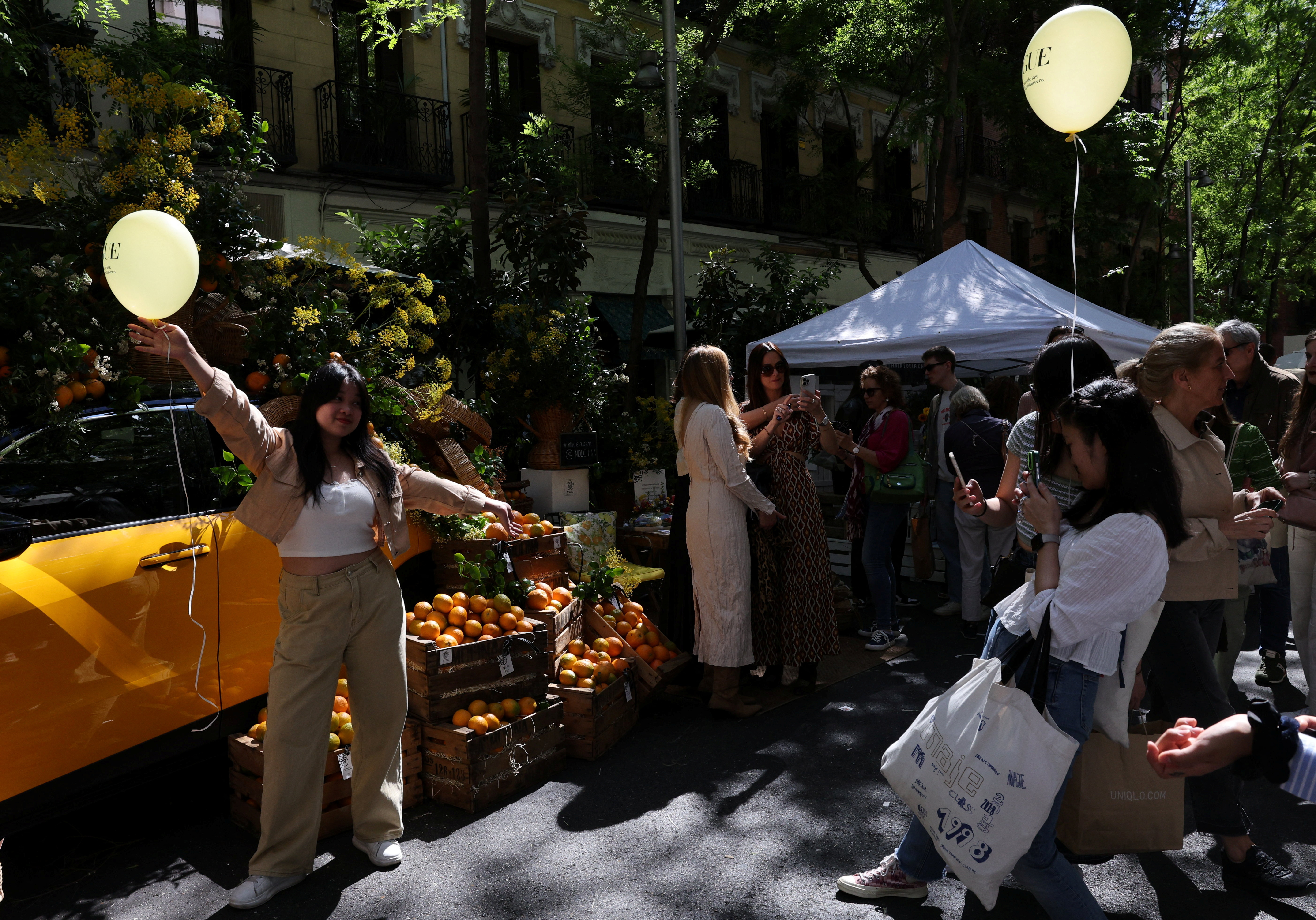
- Visitors to Spain reach 85 million per year since pandemic
- Tourism helps Spain grow faster than euro zone peers
- Some Spaniards don't feel benefits of boom
UNDER-PRICED
Sign up here.
Reporting by Belen Carreño and Corina Pons; additional reporting by Joan Faus and Inti Landauro; writing by Charlie Devereux; editing by Toby Chopra
Our Standards: The Thomson Reuters Trust Principles. New Tab , opens new tab

Thomson Reuters
Reports on politics and economics in Spain. She is also an editor of Reuters Next. Has been finance reporter and business editor with several outlets over the past 20 years.

Corina is a Madrid-based business reporter focusing on coverage of retail, infrastructure and tourism including some of Spain's biggest companies like Inditex and Ferrovial. She was previously a senior correspondent in Venezuela, where she reported the Chavez and later Maduro government's efforts to retain power and the effects on the economy.

Markets Chevron

Asian stocks rise on rate-cut wagers; spotlight on India
Asian stocks rose on Wednesday, while the dollar was steady as a softening U.S. labour market firmed up bets of an interest rate cut in September from the Federal Reserve ahead of a crucial payrolls report this week.


IMAGES
VIDEO
COMMENTS
via the online digital registration system within 24hrs of arrival of the guests. Tourism Safety Plan. The principal objective of the newly introduced "Tourism Security Plan" is to permanently increase public safety in tourist areas and provide a safer environment for tourists during their stay in our country.
Webpol is a digital platform initiated by the Spanish police to streamline the registration of tourists in accommodations across Spain. It serves as a bridge between property managers and law enforcement, ensuring that tourists are accounted for, promoting safety, and adhering to Spain's commitment to secure tourism.
Useful information for your trip to Spain. We offer you practical advice on border requirements, money, security, health and internet connection and inform you of the habitual opening hours in Spain, our public holidays, driving tips and what you need to know if you are travelling with pets. That way you will be prepared and informed on ...
Inviare automaticamente tutte le informazioni dei tuoi ospiti alle autorità. Description: Guest Registration legislations in Spain obligates hosts to report the traveller form (Parte de Entrada) considering two different moments of the reservation.
In Valencian region, prior to registration with the Tourism registry, it is necessary to obtain an urbanistic certificate from the Town hall confirming the property is suitable to be used for touristic rentals. Town Halls charge a fee of approx. 70-90 euros for issuing the certificate and it can take up to 2 months to be issued.
Location: Spain Event: Effective June 24, 2021, U.S. citizens can travel from the United States to Spain if upon arrival they present a QR code generated through the Spain Travel Health portal, obtained through the website or by downloading the "SpTH app" in Google Play Store or iTunes App Store for each traveler, regardless of their age.
Travelers in Palma de Mallorca on June 13. CATI CLADERA (EFE) The summer season has arrived and Spain is hoping for an influx of foreign visitors to revitalize its struggling tourism and hospitality sectors. While an uptick in domestic travel is helping, businesses know that the numbers will only add up when the international visitors show up.
Tourist information about Spain: art, culture, museums, monuments, beaches, cities, fiestas, routes, cuisine, natural spaces in Spain | spain.info
It is mandatory to register all those travellers over 14 years of age. This will be done by completing a form known as traveller's part (parte de Entrada) which must adhere to the model established in the Annex to Order INT/1922/2003. The data collected in these parts must also be transmitted to the police in less than 24 hours after Check-in.
When you need visas and entry requirements. The passport or travel document is always required and must be valid for up to three months after the expected date of departure from the Schengen area, and must have been issued within the previous 10 years to the date of entry. Citizens of the European Union, Iceland, Liechtenstein, Norway and Switzerland may enter and travel within Spain with ...
Covid19 - Entry requirements in Spain. Beginning on October 21, 2022, the following travelers can enter Spain without showing any sort of covid-19 document/certificate: Spaniards and EU citizens. Duly registered family members of Spanish and EU citizens. Foreigners residing in the European Union or associated Schengen countries (it is necessary ...
For additional travel information. Enroll in the Smart Traveler Enrollment Program (STEP) to receive security messages and make it easier to locate you in an emergency. Call us in Washington, D.C. at 1-888-407-4747 (toll-free in the United States and Canada) or 1-202-501-4444 (from all other countries) from 8:00 a.m. to 8:00 p.m., Eastern ...
With the Chekin app you can quickly identify your guests wherever you are. With its scanner you will capture all the data pointing to passports or ID cards, they will then sign on the screen and with a single touch you will have sent the data to La Guardia Civil. Your guests' documentation will be stored in the cloud and sent to you instantly ...
Comunidad Valenciana. In the Valencian Community, before obtaining the tourist licence number, you must register your property and obtain the compatibility report, which is issued by the local councils. You must also have a habitation certificate, to prove that the property is habitable. Once you have the compatibility certificate, you can ...
The terms of registration of tourist licence in Spain vary from region to region and can range from 60 days to several months. Also before buying a property for the purpose of tourist rental, it is important to find out all the conditions necessary to obtain a licence. The property must meet certain technical requirements.
Understanding Spain's tourist licence for holiday rental properties. In recent years, the allure of Spain as a holiday destination has not waned, with its sun-soaked beaches, rich history, and vibrant local cultures attracting visitors from all over the world. For property owners, this presents a lucrative opportunity to earn extra income ...
have a 'date of issue' less than 10 years before the date you arrive - if you renewed your passport before 1 October 2018, it may have a date of issue that is more than 10 years ago. have an ...
A tourist license is a permit issued by local authorities in Spain, allowing property owners to legally rent out their properties as vacation homes (SHORT TERM RENTALS, less than 3 months). This license ensures compliance with local regulations and standards, ensuring safety and quality for tourists. Steps to Apply for a Tourist License in Spain
If you are planning to visit Spain for tourism, business, medical or other purposes, you can apply for a Spain visa through the official website of BLS Spain Visa Application Centres. You can select your region and country of residence, check the visa requirements, fees, insurance, health check and other services, and book or cancel your appointment online.
How to enter into Spain in 2023. The first thing you must take into account to enter Spain during 2023 is that you will have to comply with 2 different set of requirements. While until now foreigners had just to consider the requirements imposed at the immigration level (for example the need to get a tourist visa); now the sanitary requirements ...
You can either apply directly from Spain with a tourist visa for a 3-year card or apply in your home country via a Spanish Consulate for a 1-year visa convertible to a 3-year card upon entry to Spain. ... The certificate confirming your registration on the Padron only lasts for 90 days. You will only need the certificate when you are ...
Points To Be Noted. - Application must be submitted in person. - Visa application period is between 6 months and 15 days. -You have to pay approximately Rs 7,000 as the Visa Fee. - In case of Visa ...
Signing up for STEP helps the U.S. embassy get in touch with you if there's an emergency. And, if your family or friends in the U.S. can't reach you with urgent news while you're traveling, we can use the information in STEP to try and contact you. Become a Smart Traveler Now! STEP is an easy first step to being a smart traveler.
So if you see one advertised without the registration number, and want to make sure you´ll rent a registered property, you can send an email to the Junta de Andalucia and ask them to check for you. ... The Law In Spain; Travel; Utilities; Citizens Advice Bureau is a registered as a Spanish Non-Profit/NPO/ONG organisation. Registration nº ...
Tourism accounted for 71% of real growth in the Spanish economy last year, according to tourism lobby group Exceltur. Consumption by non-residents accounted for nearly a third of Spain's 2.5% ...